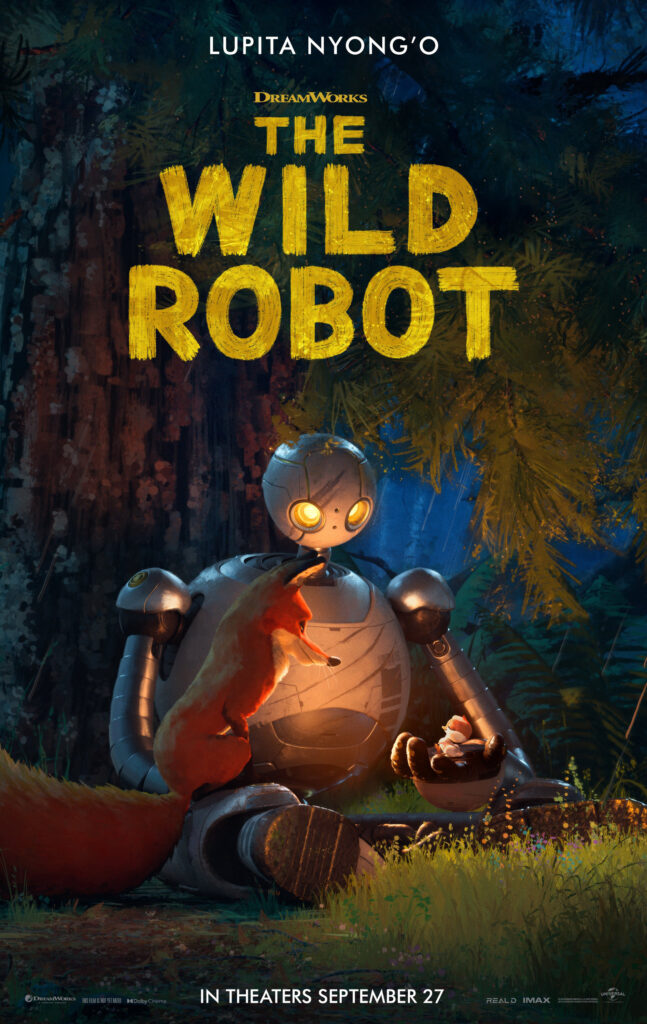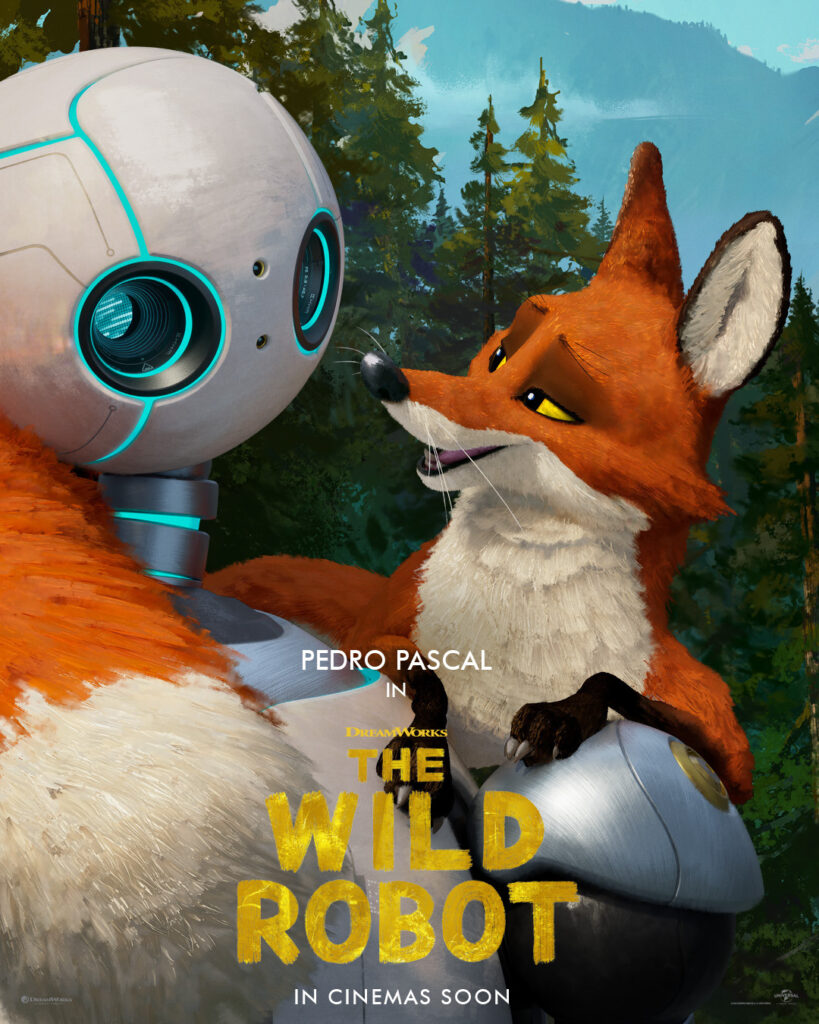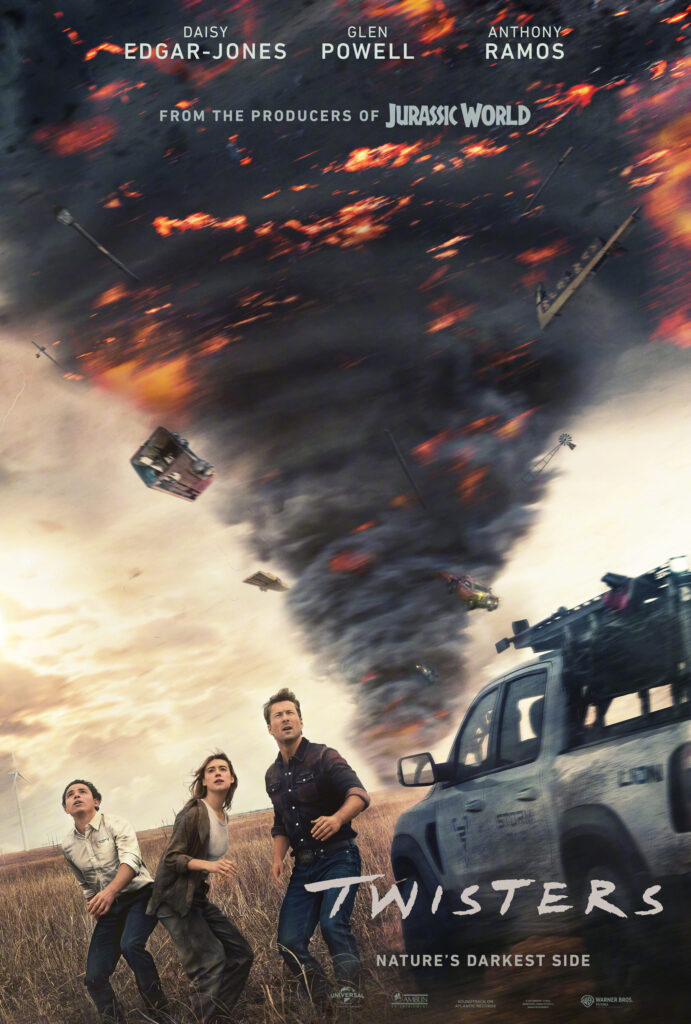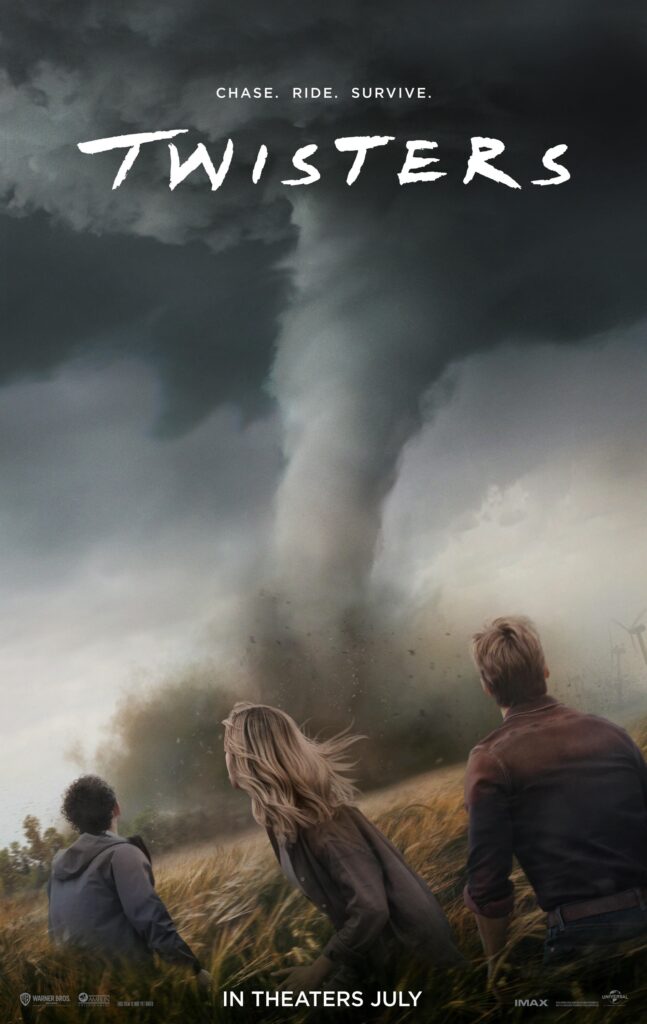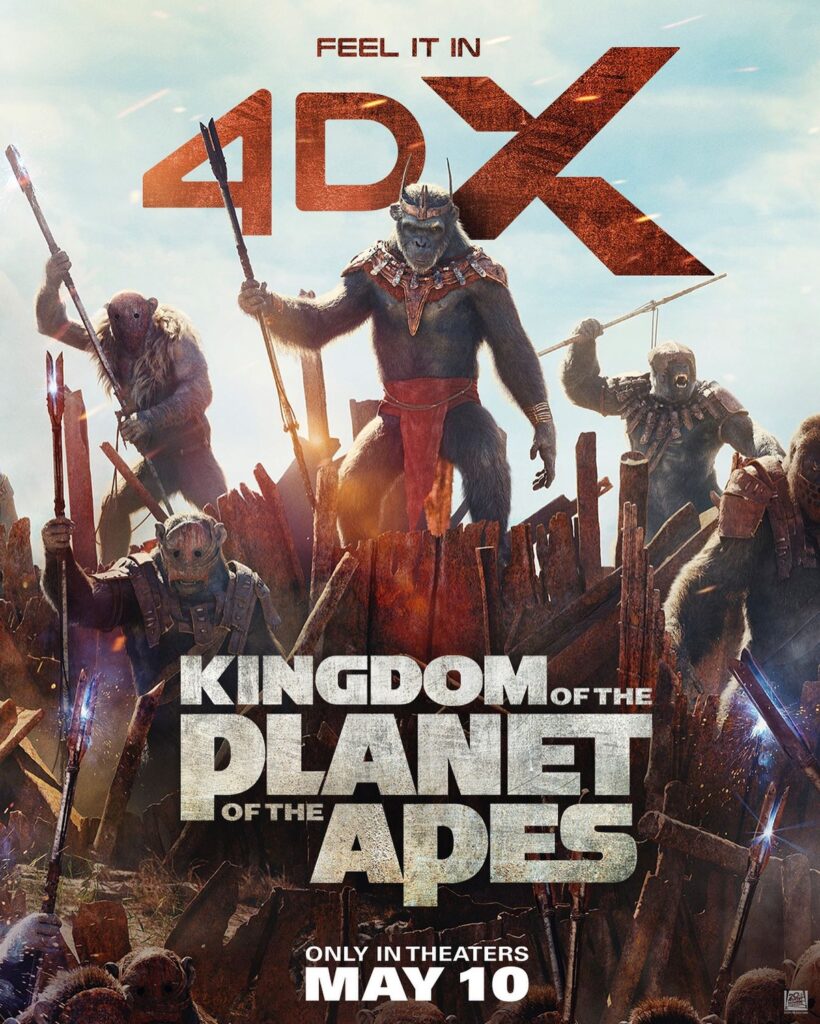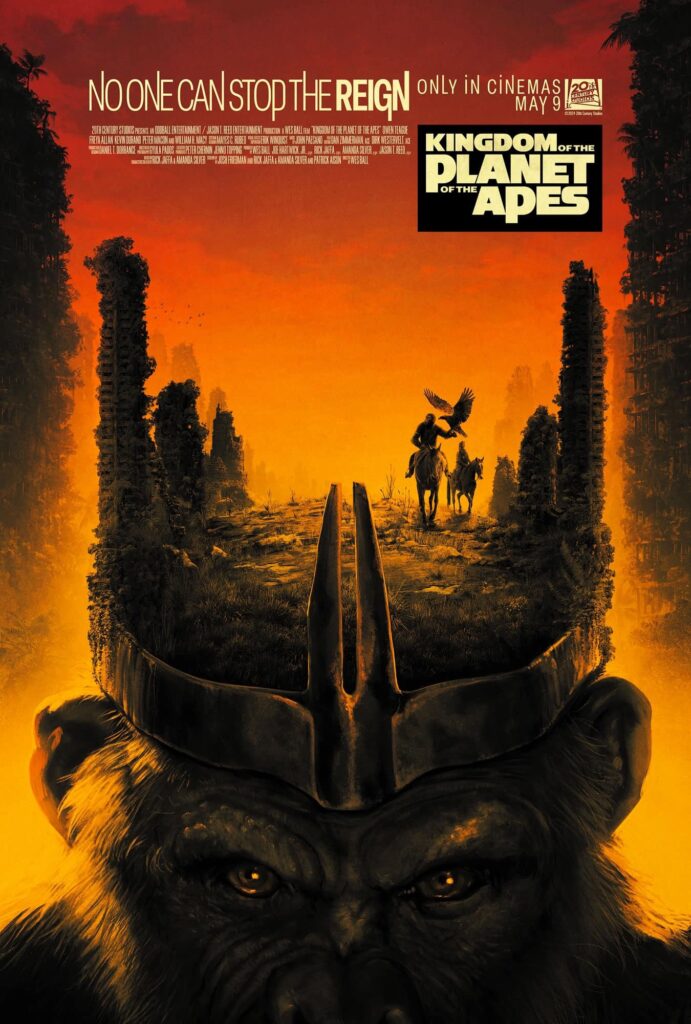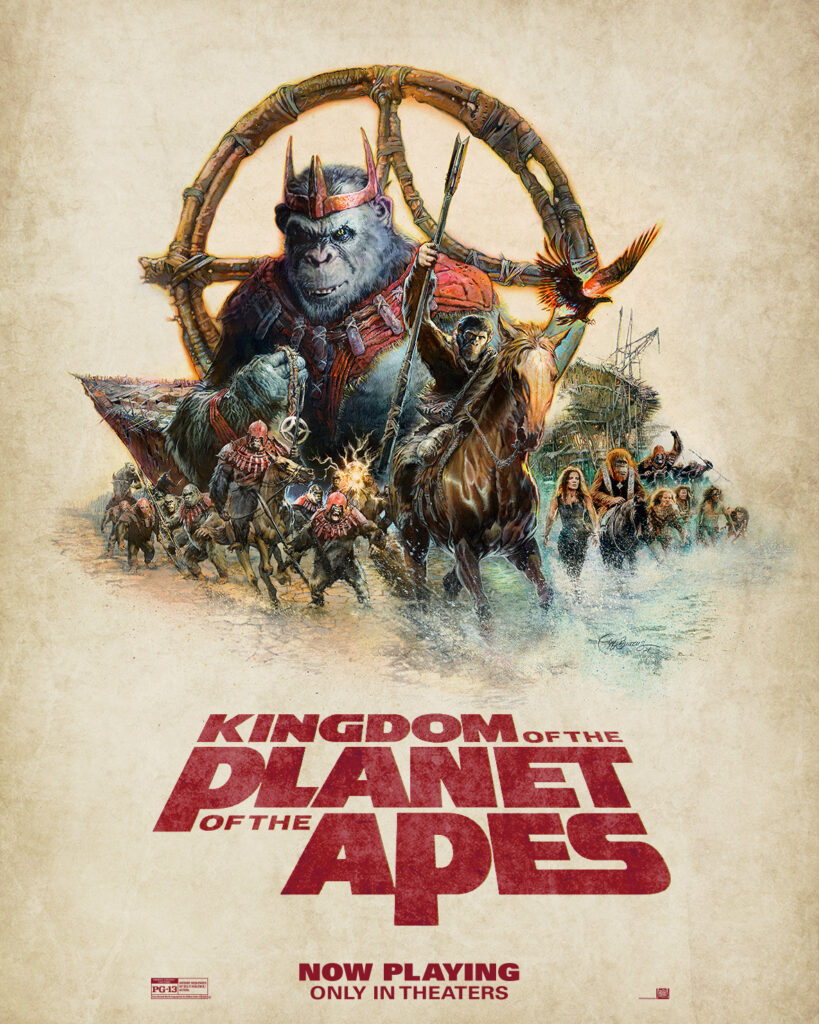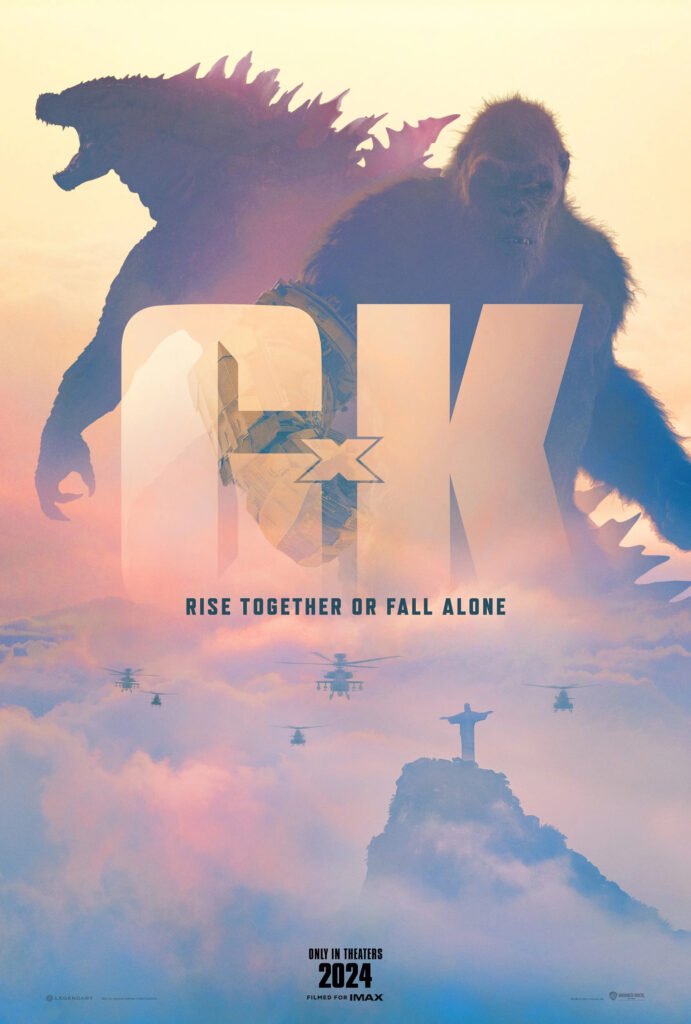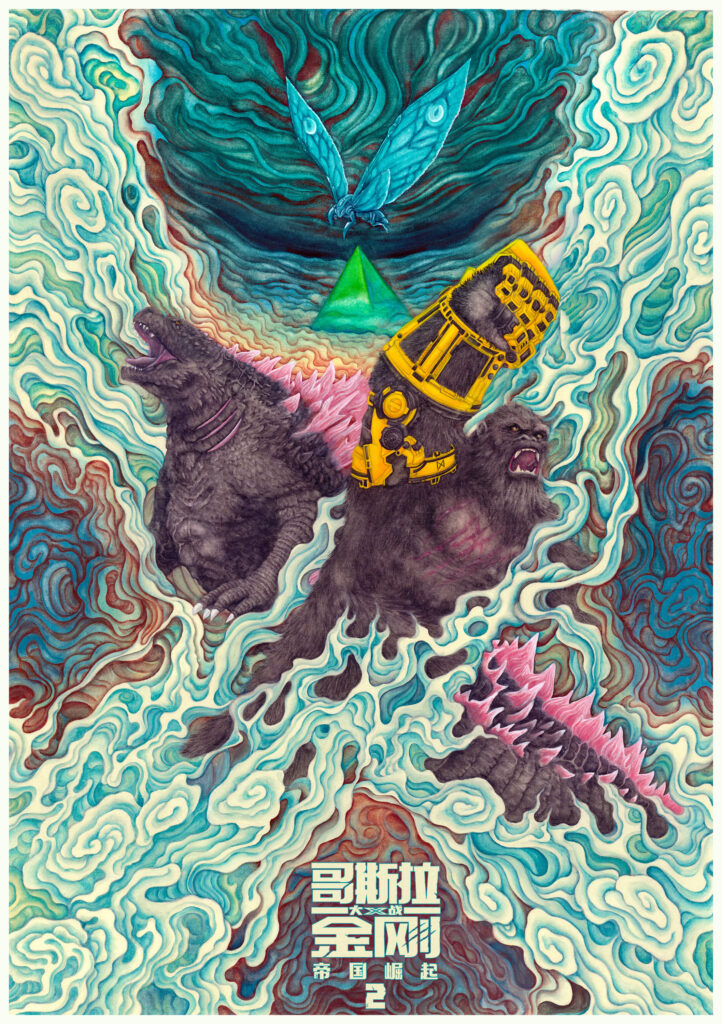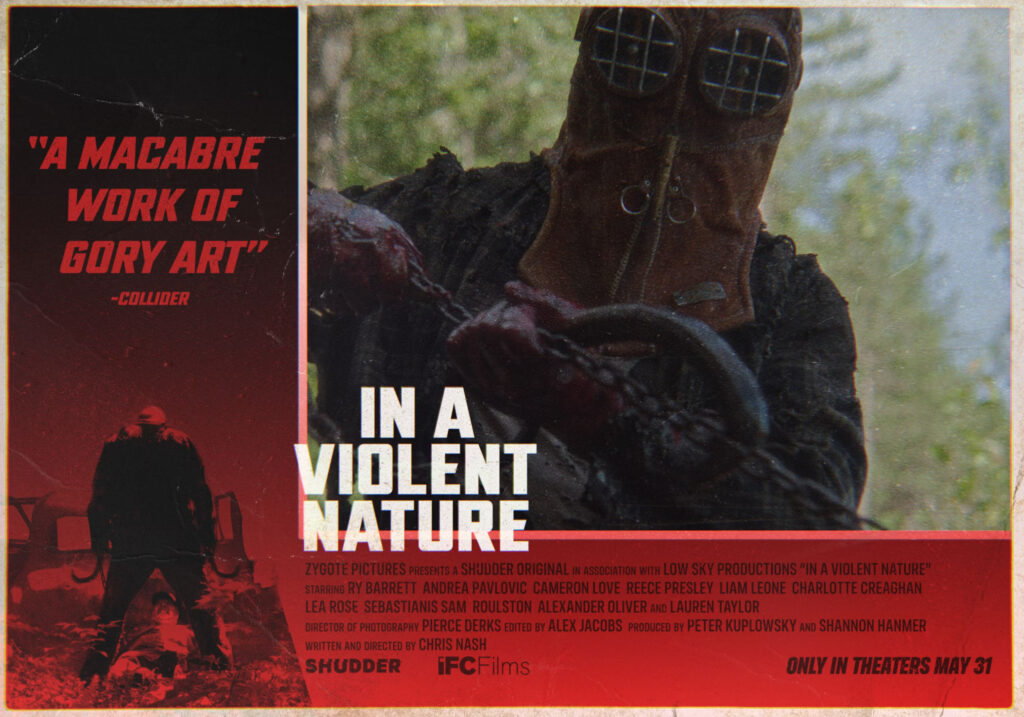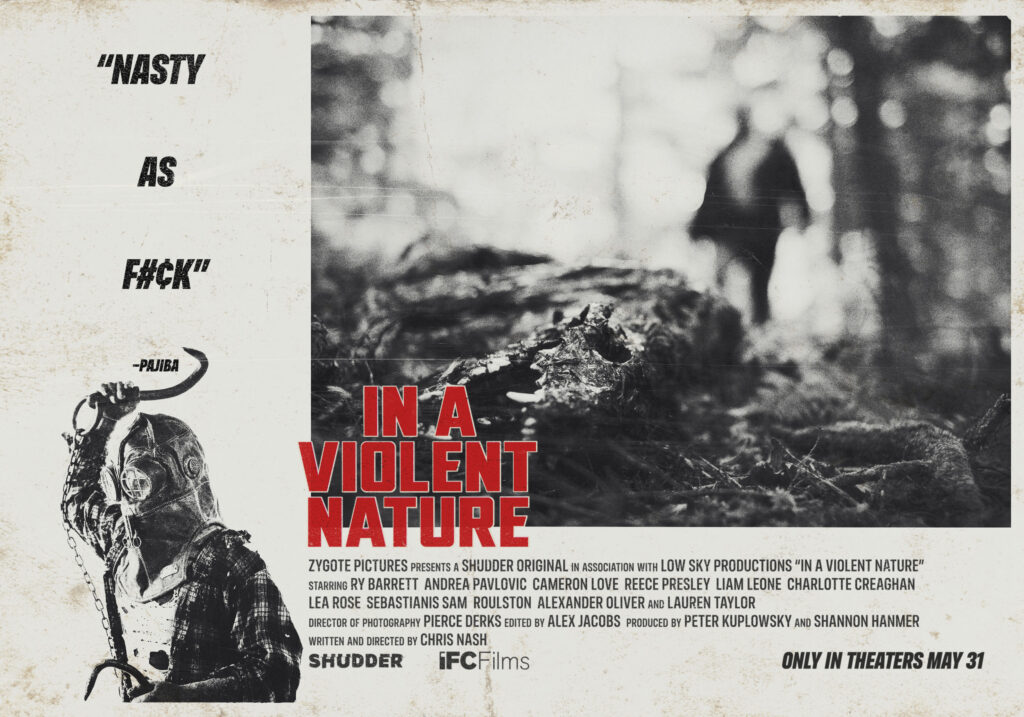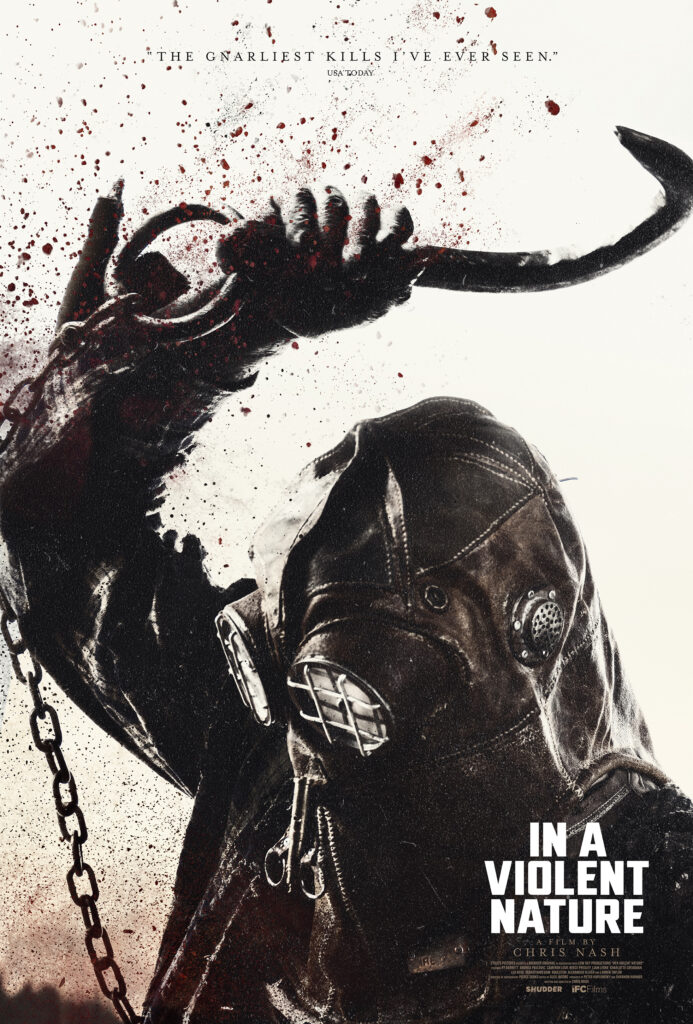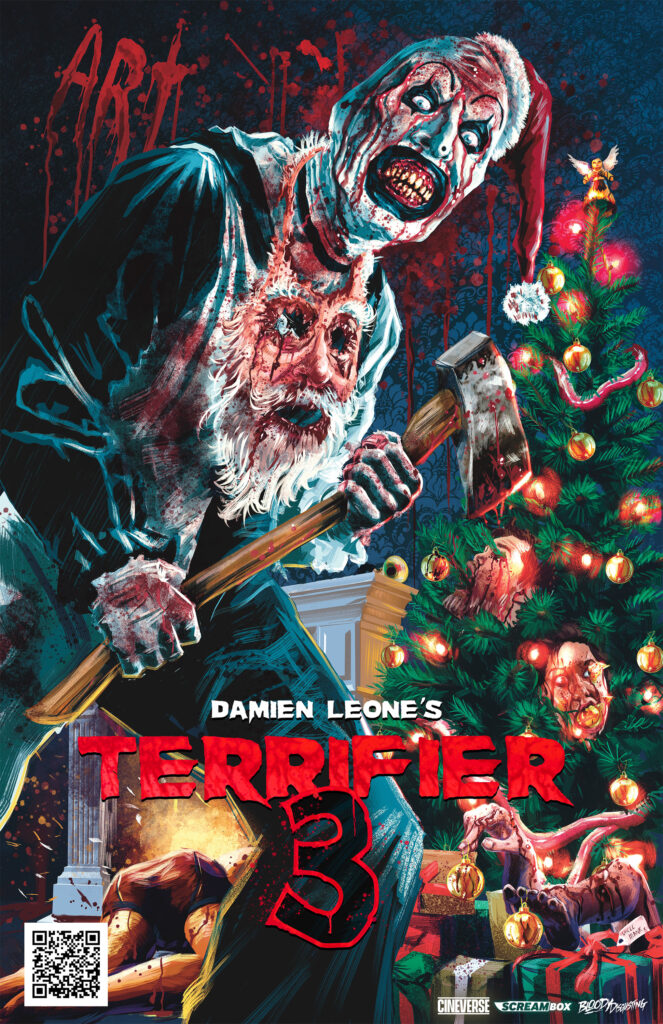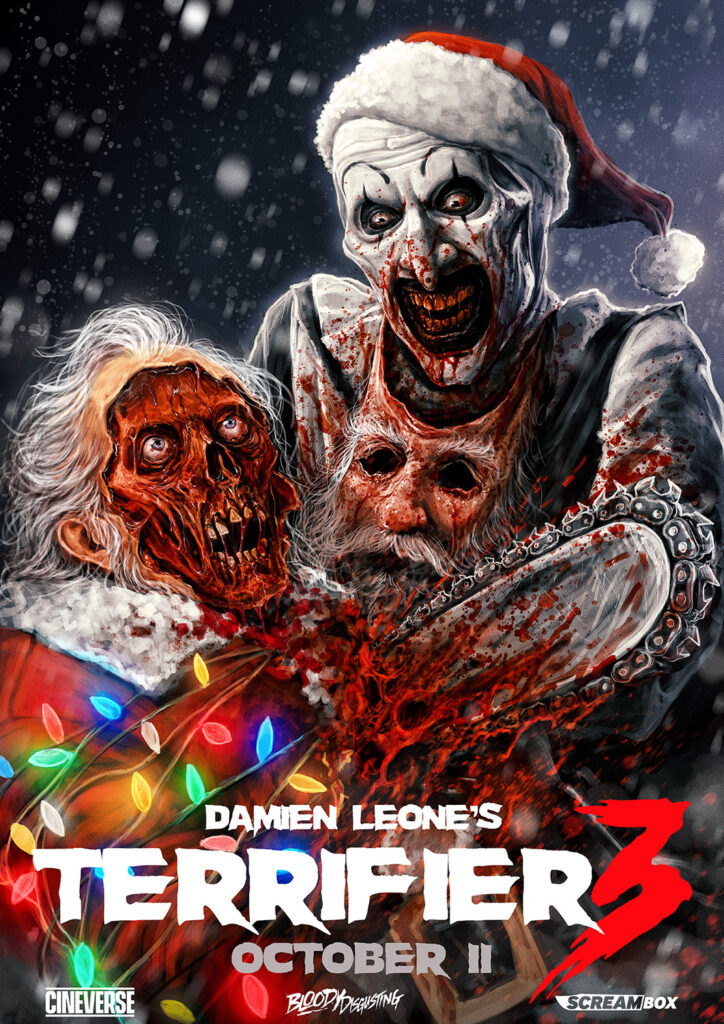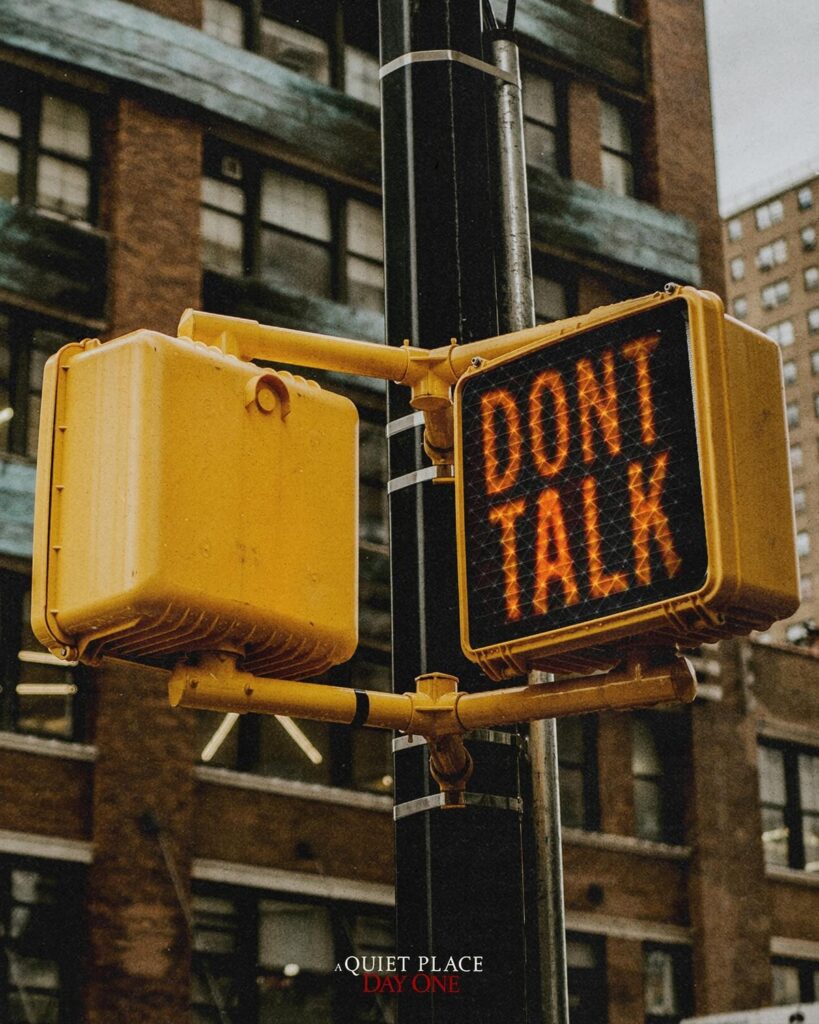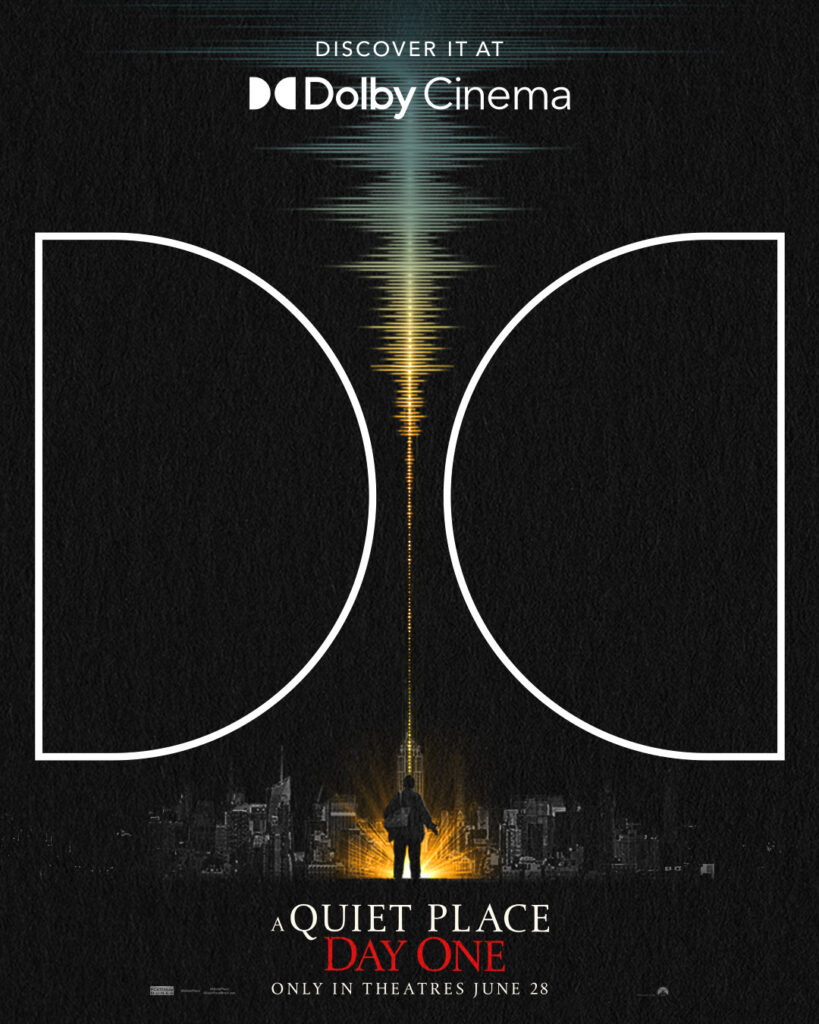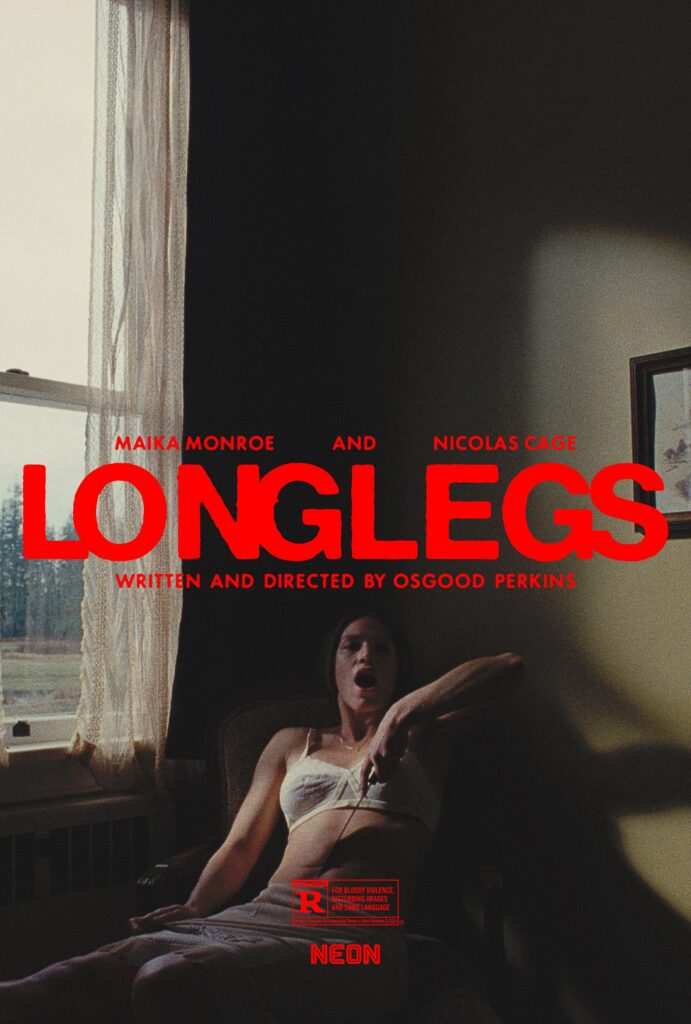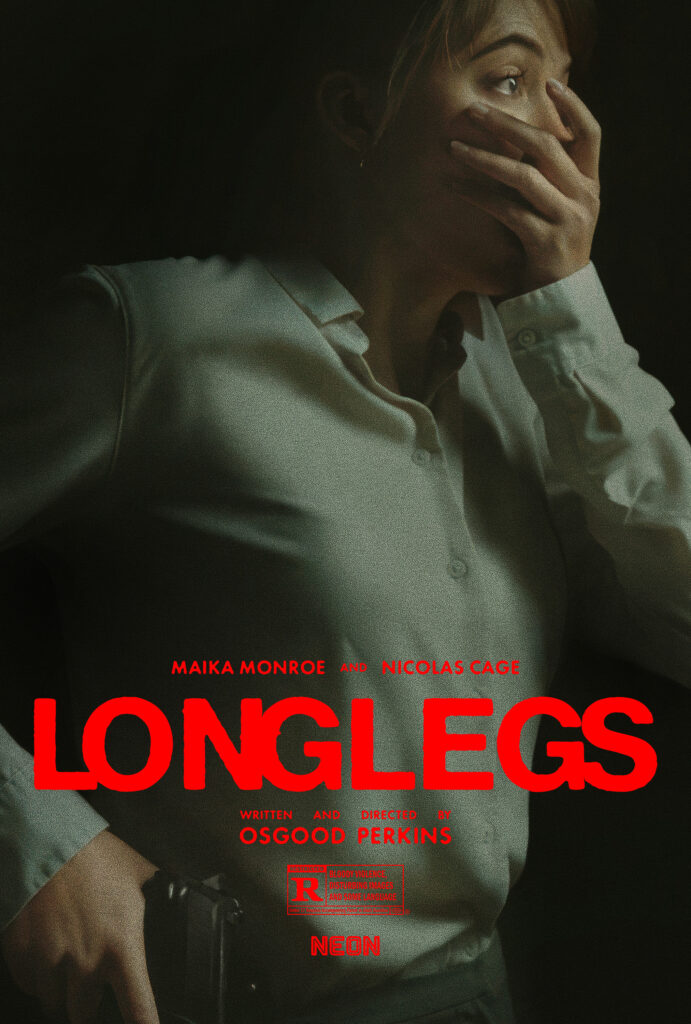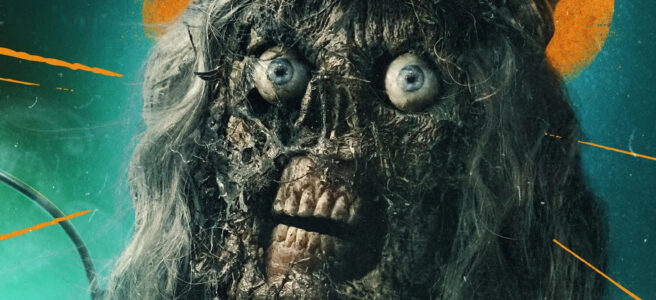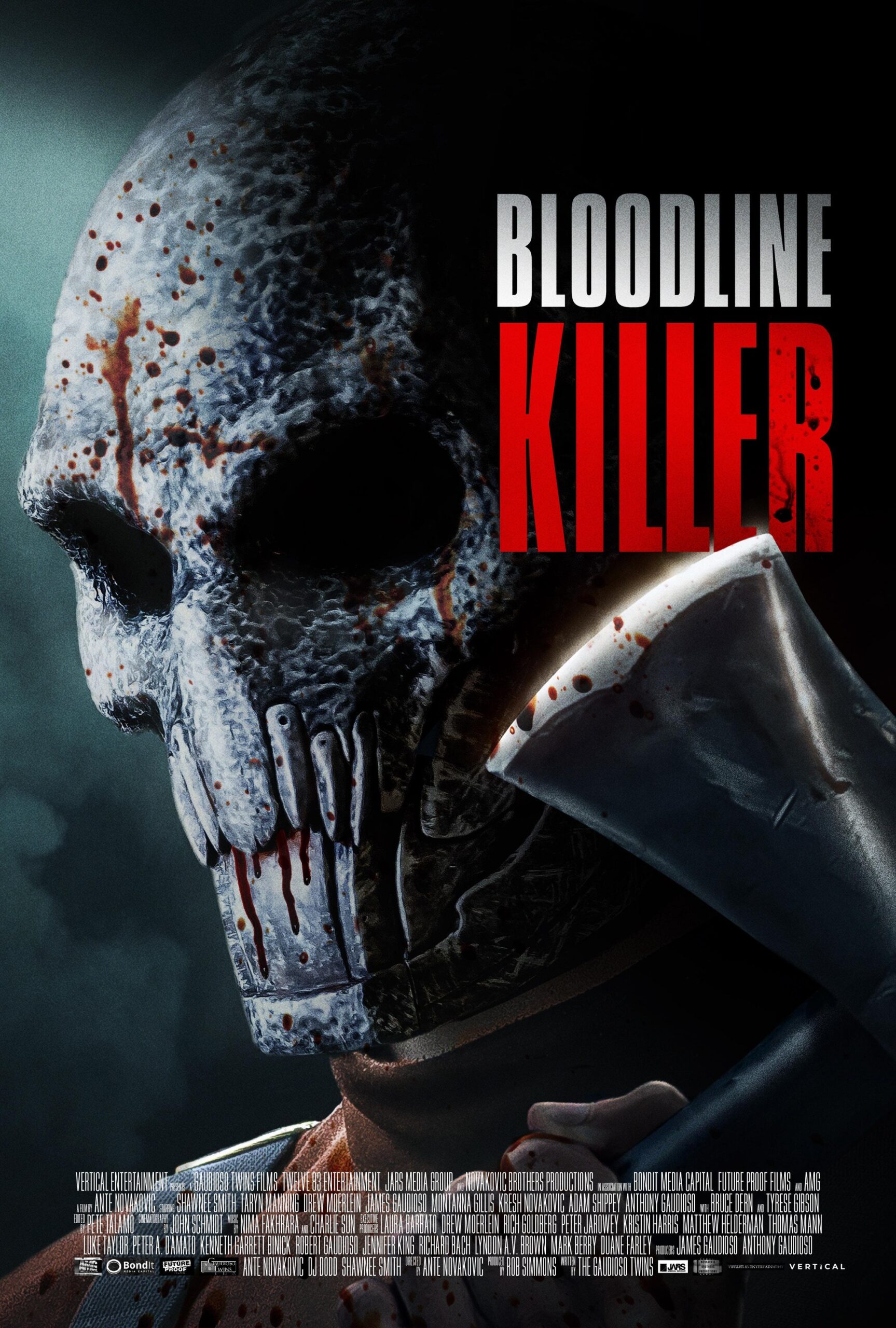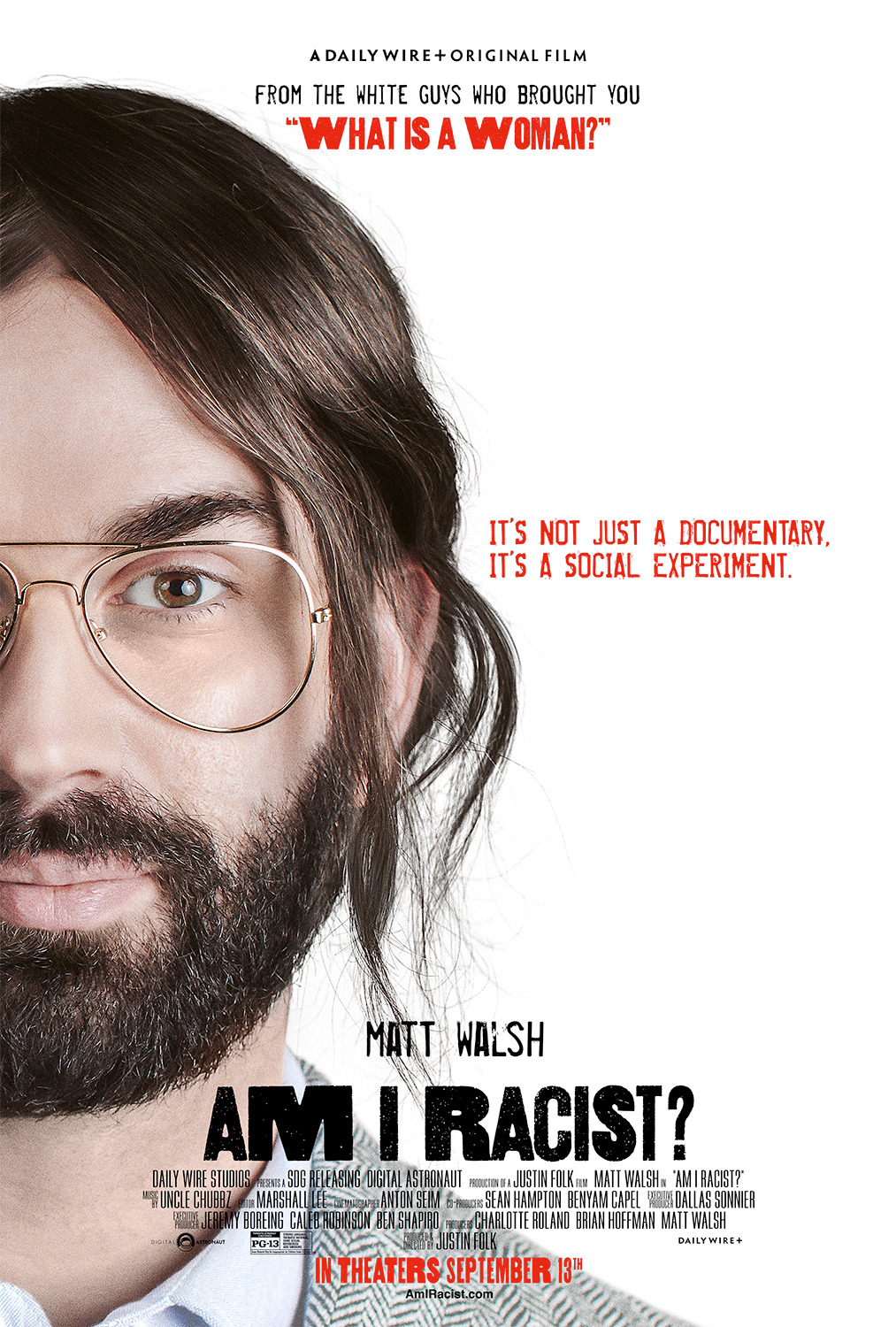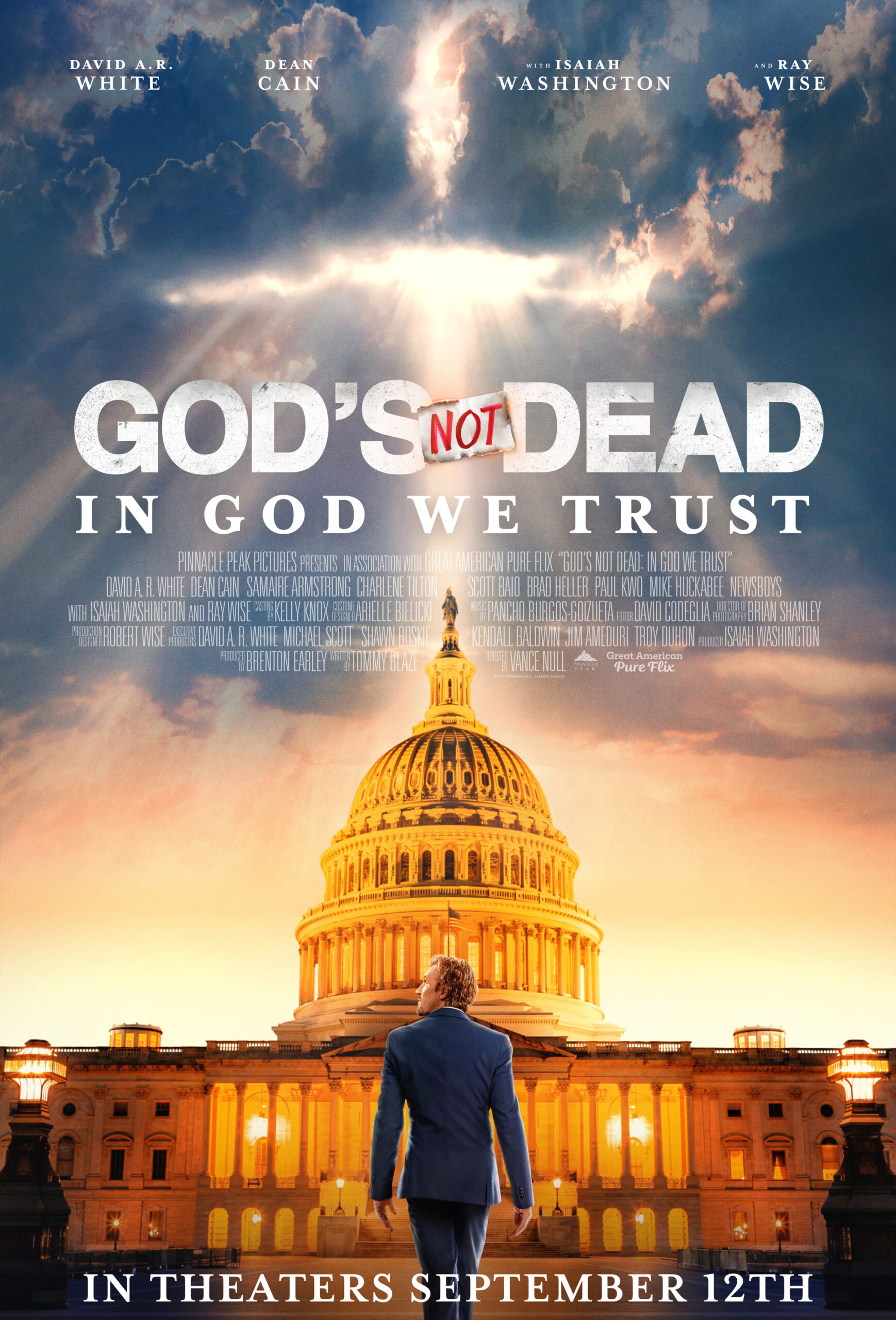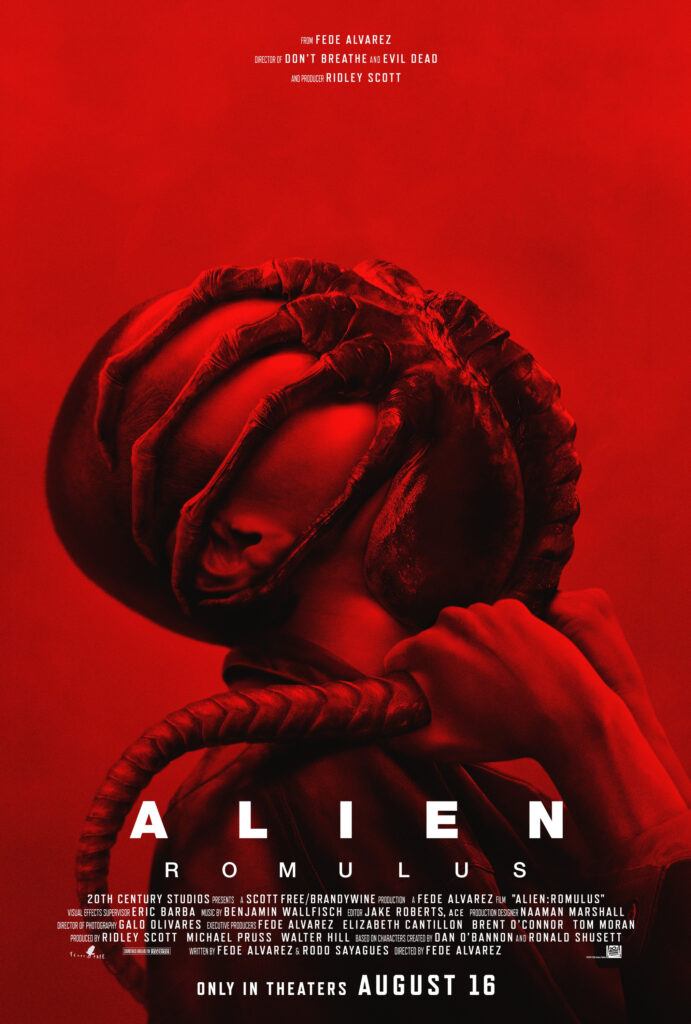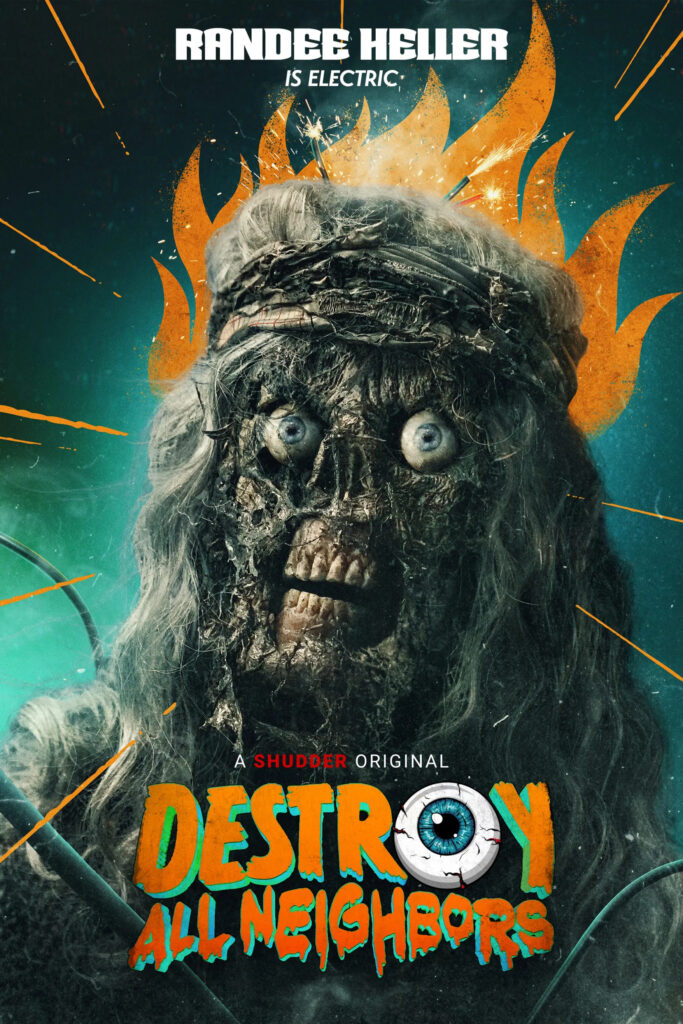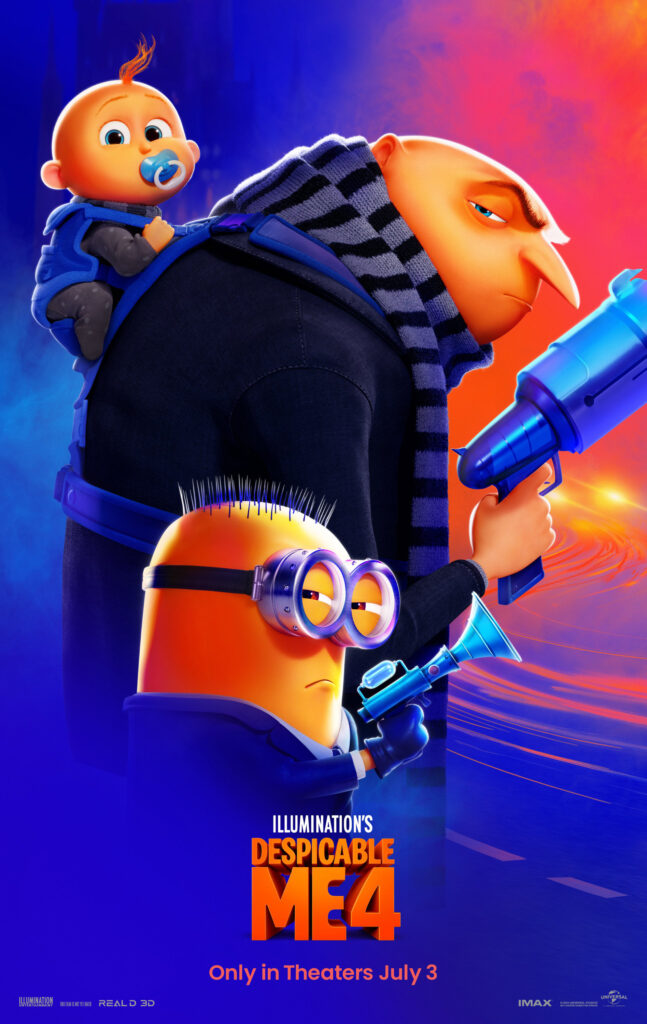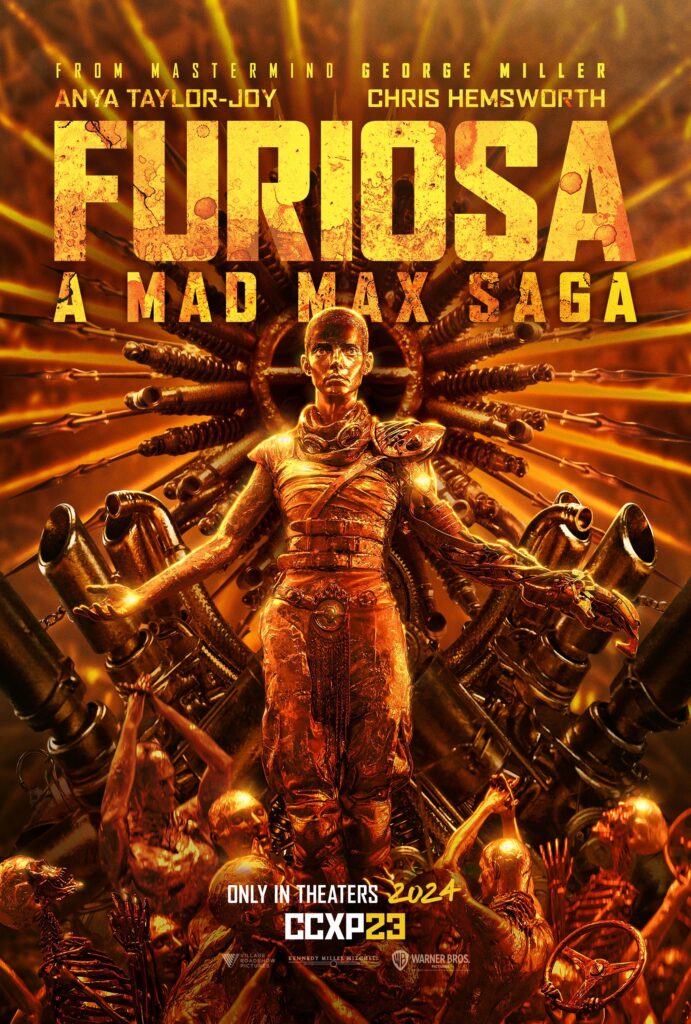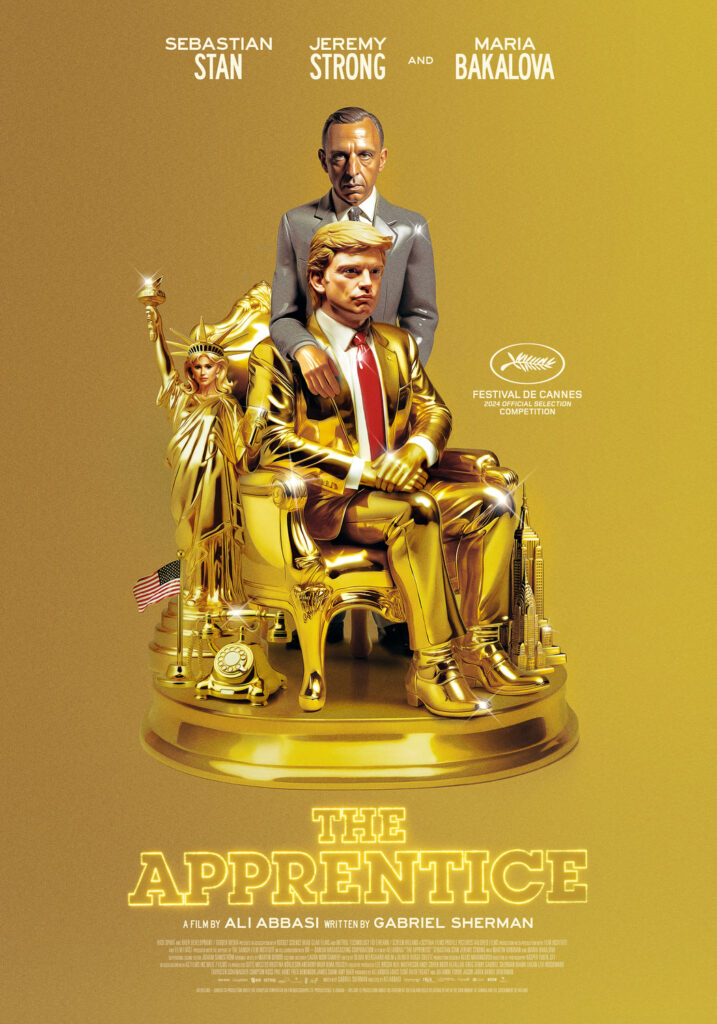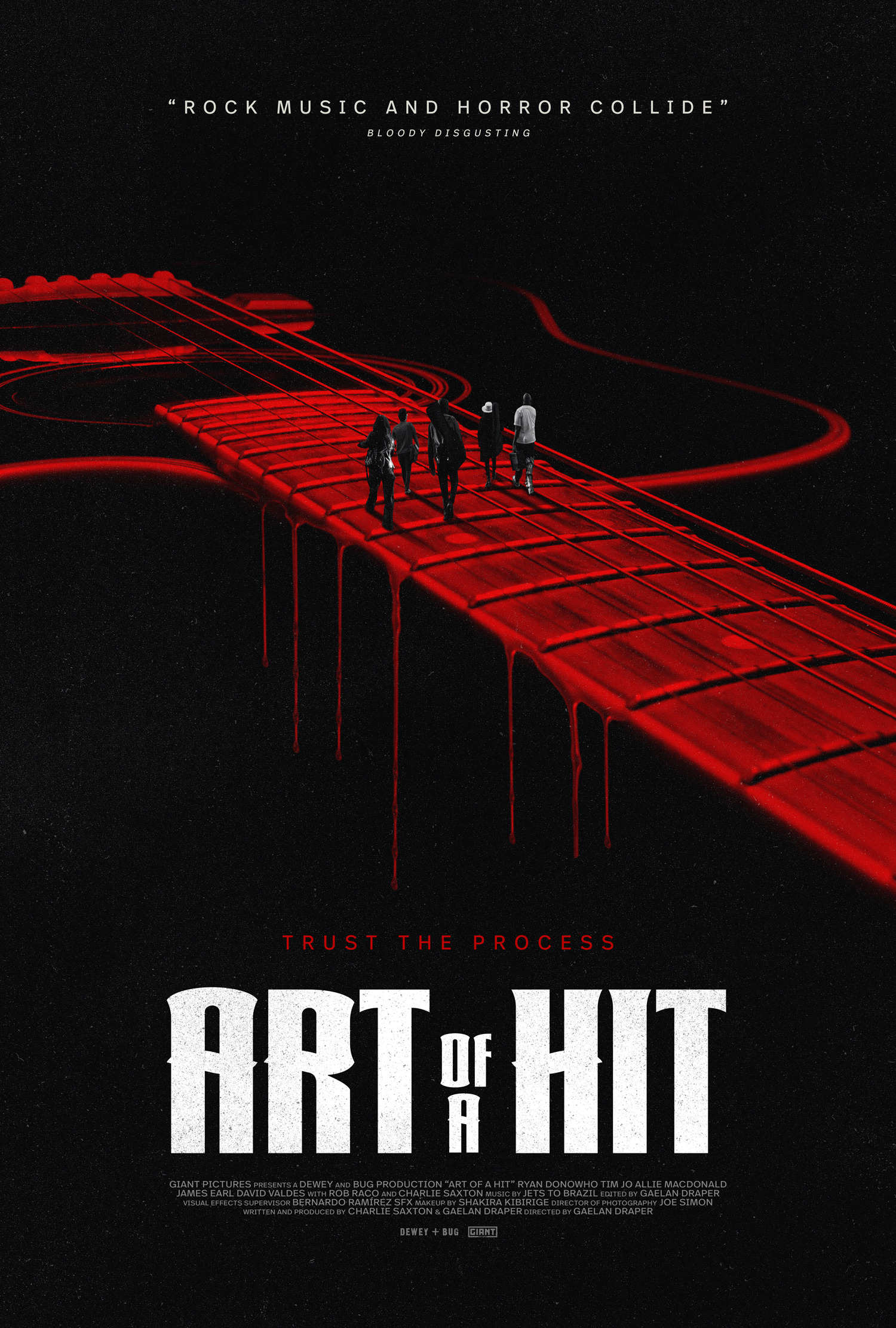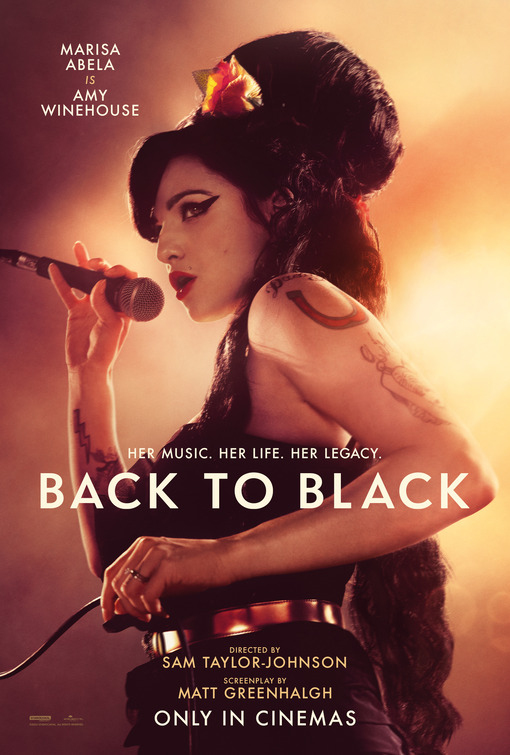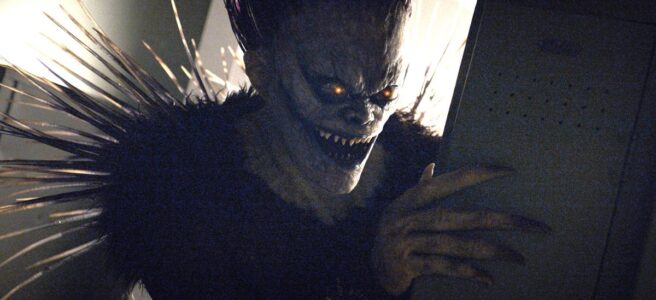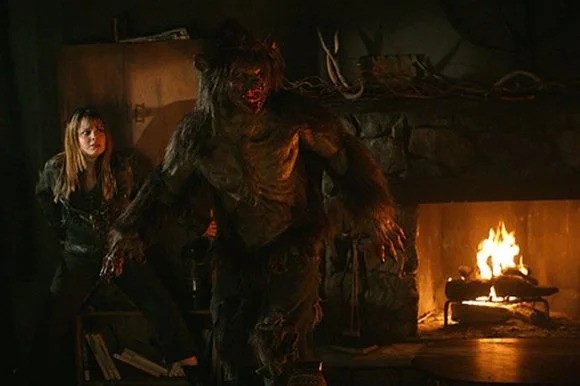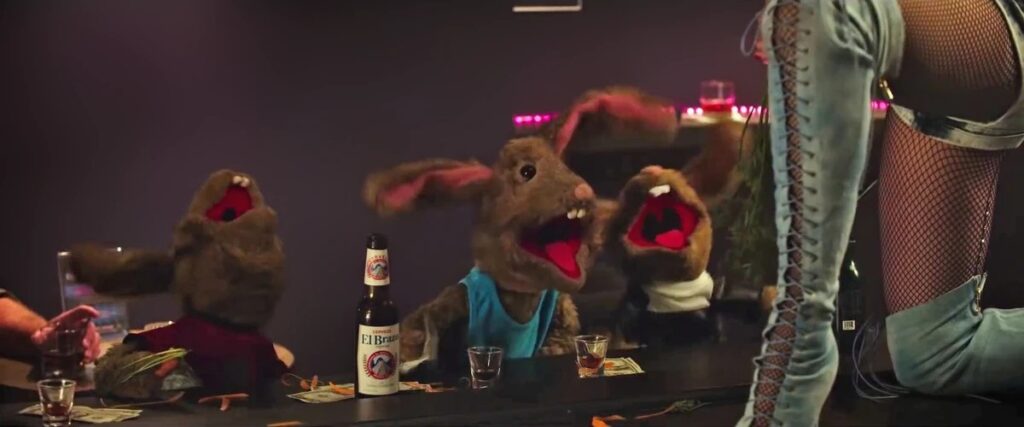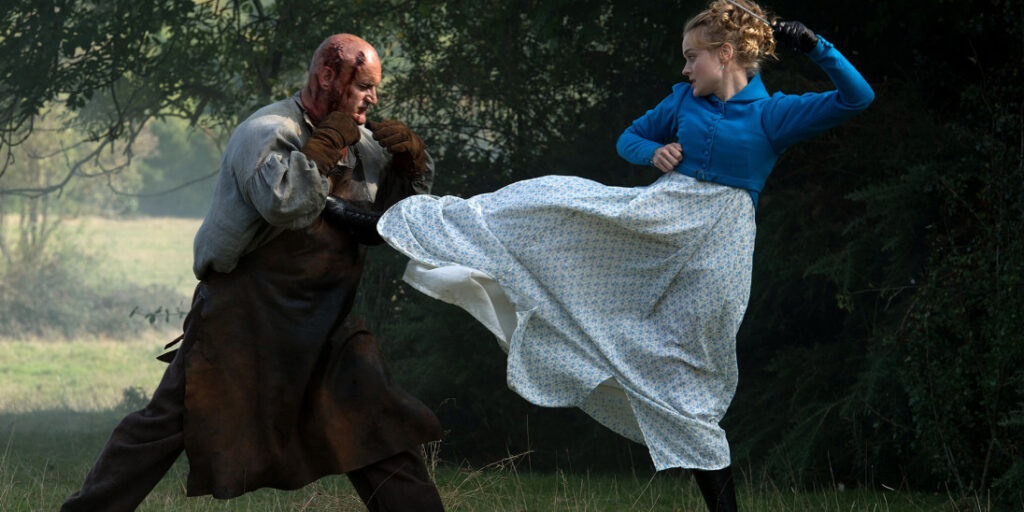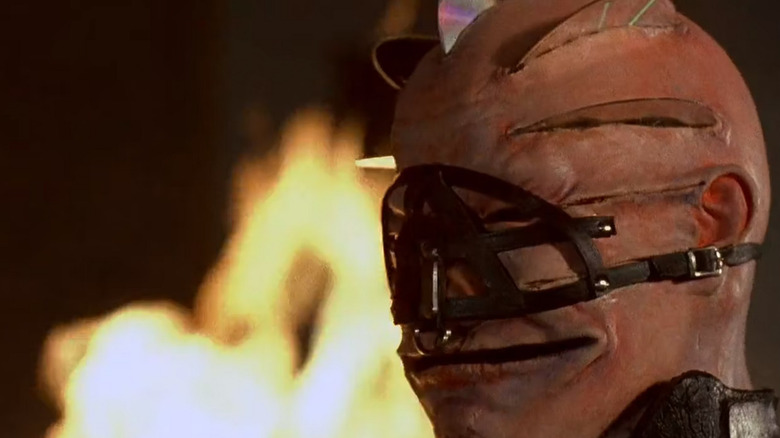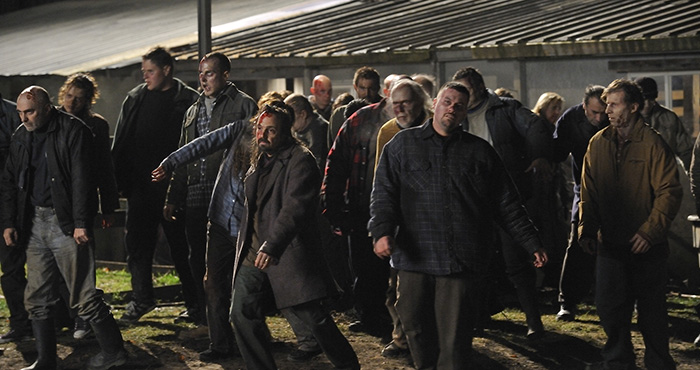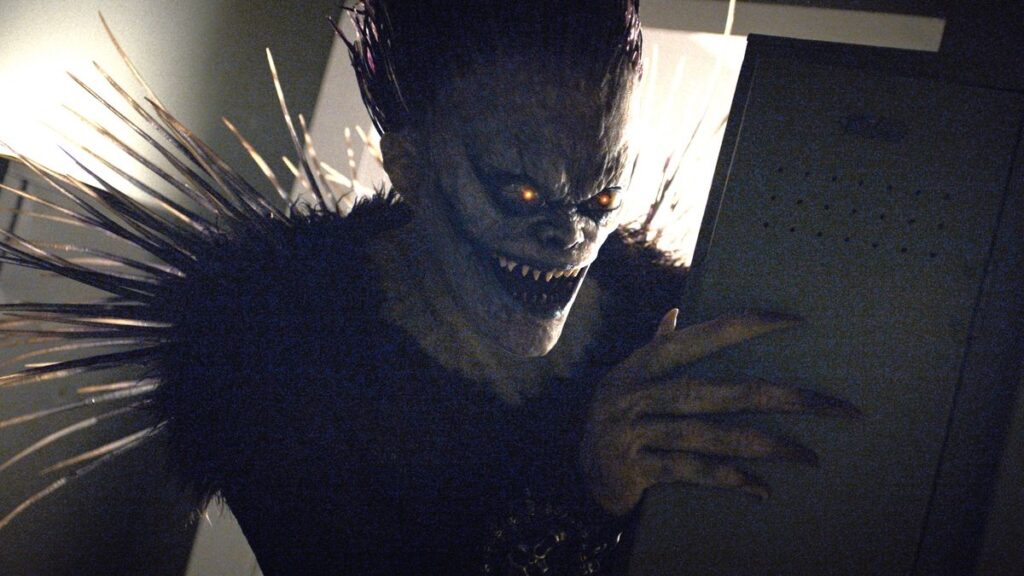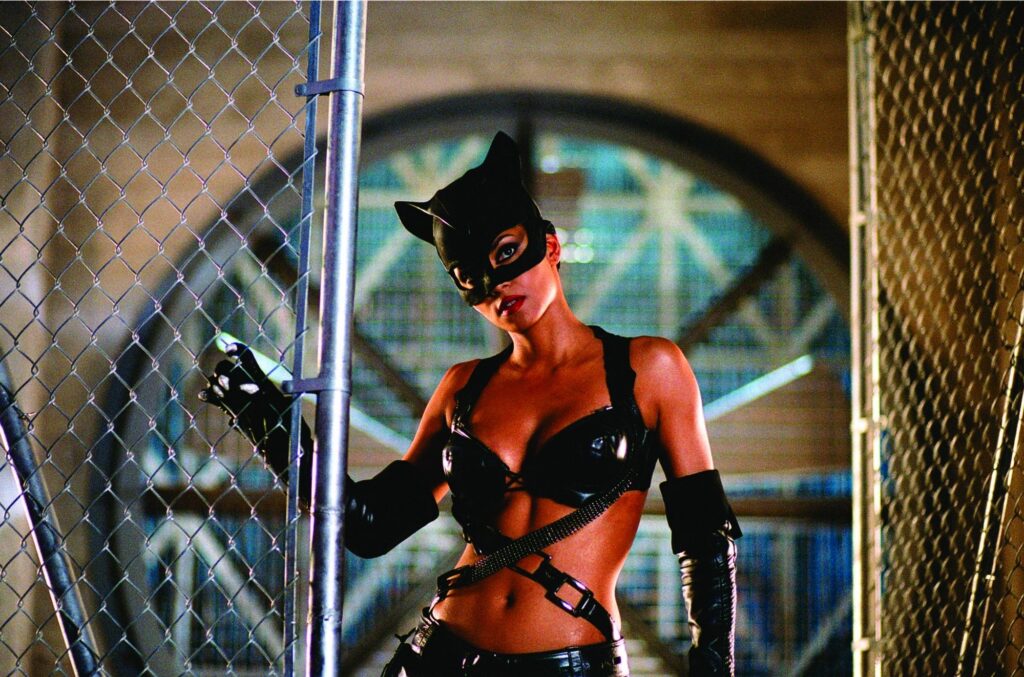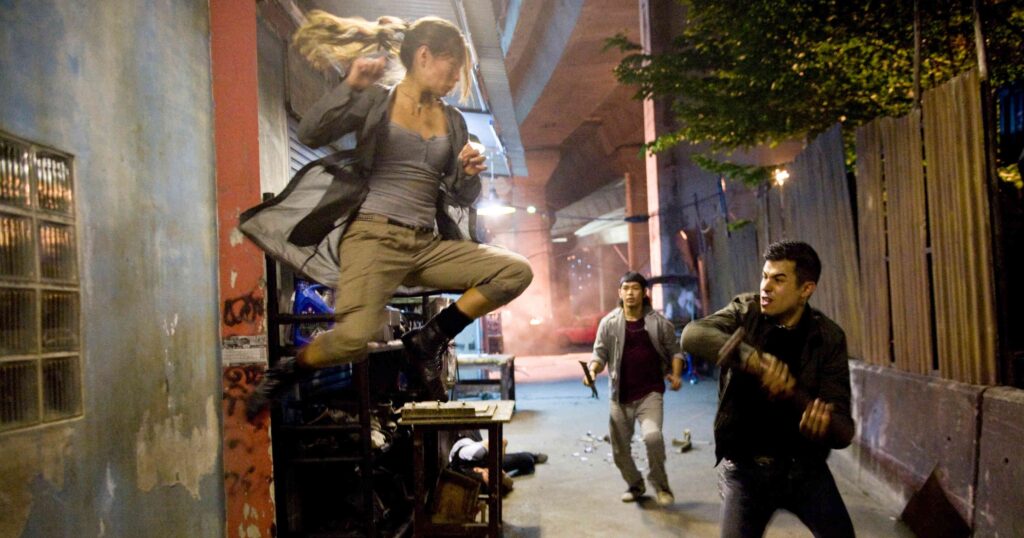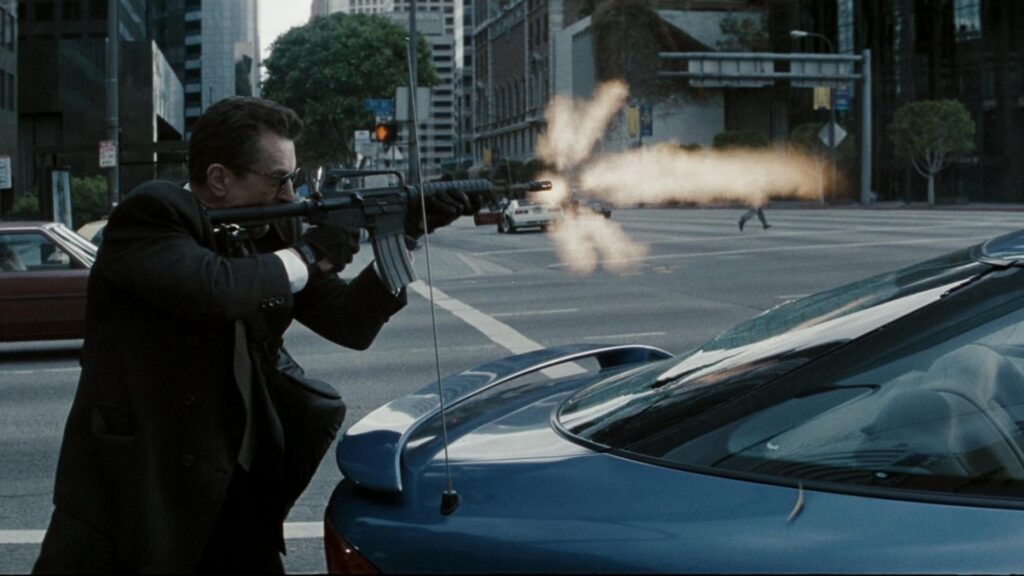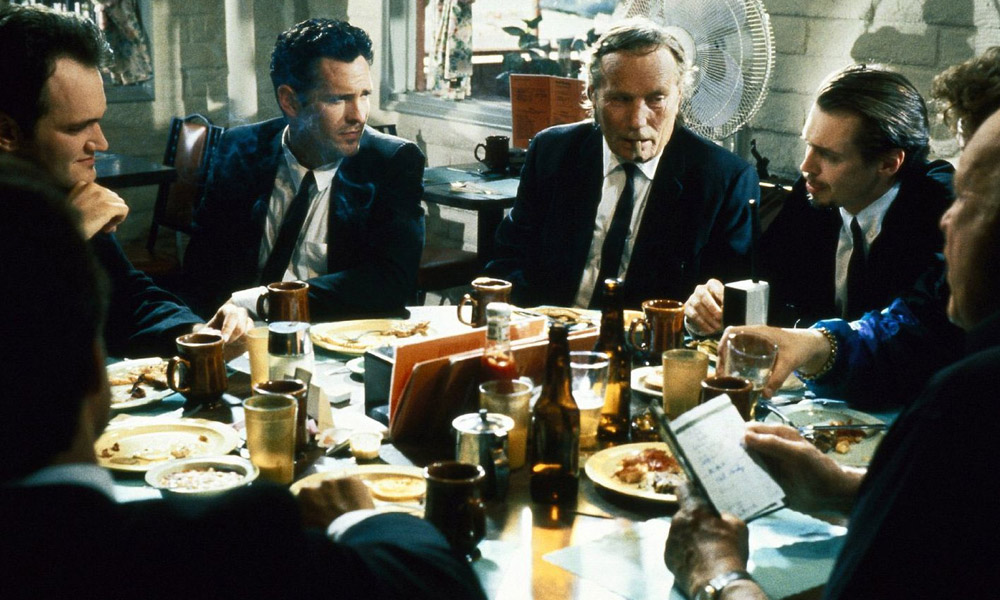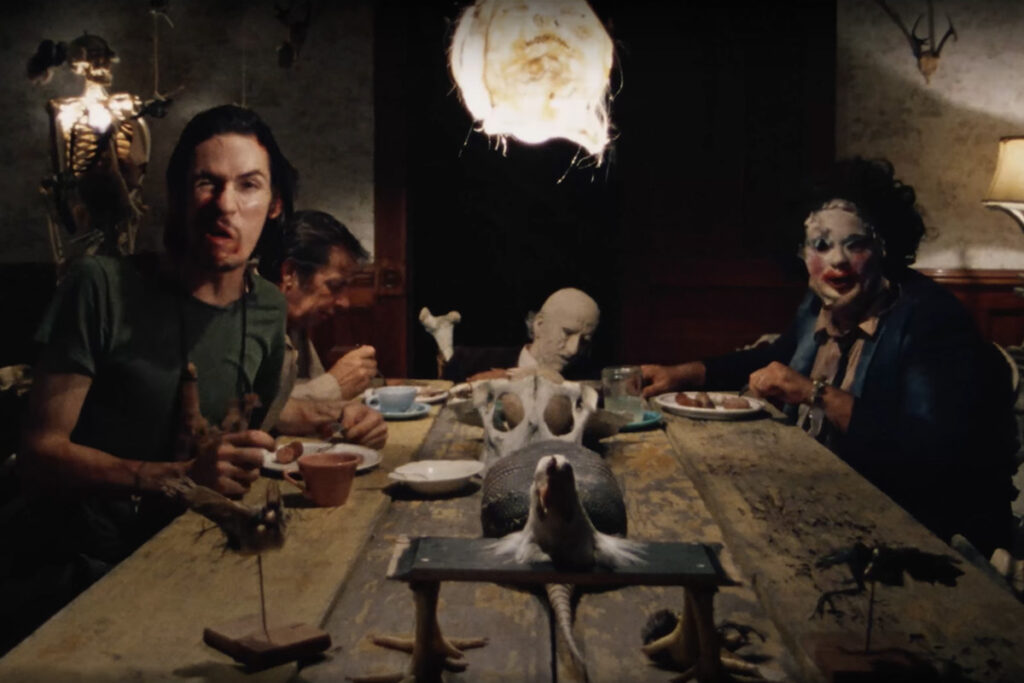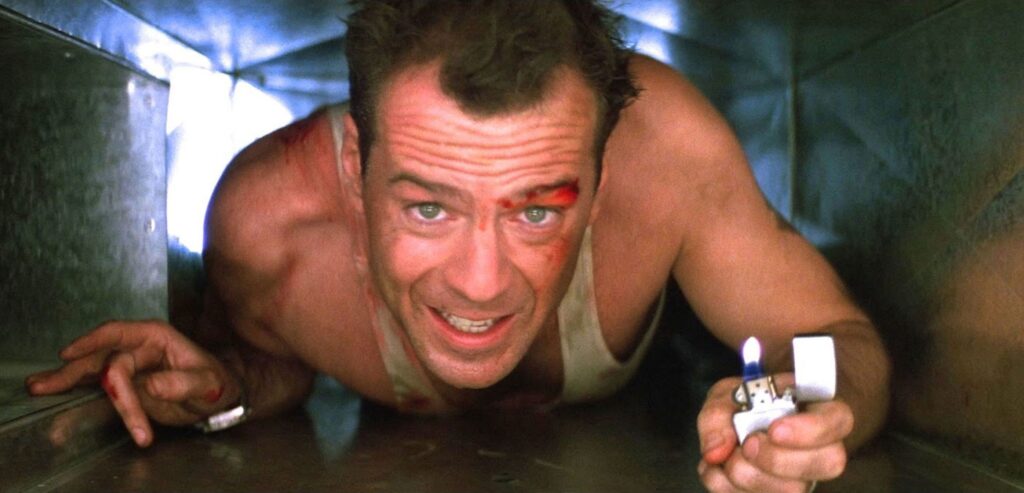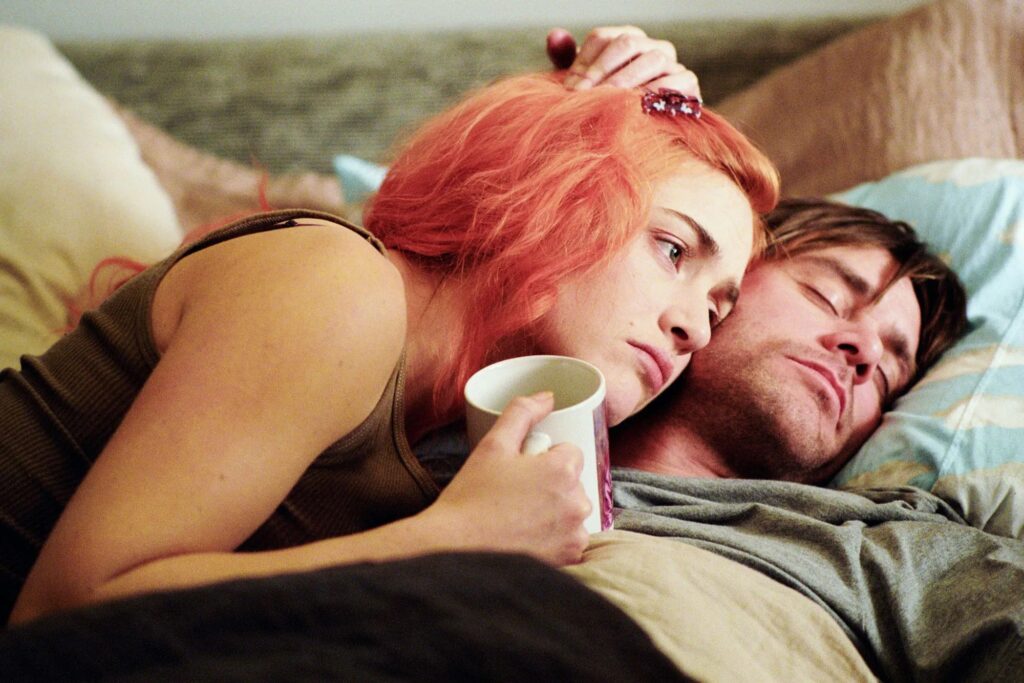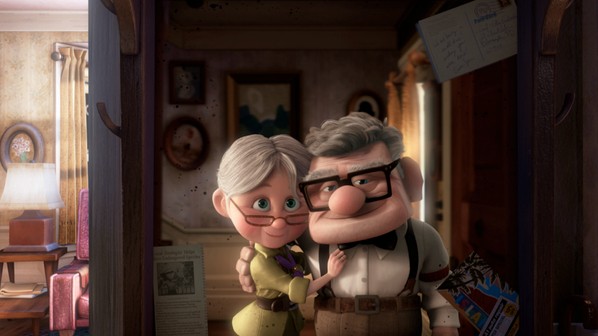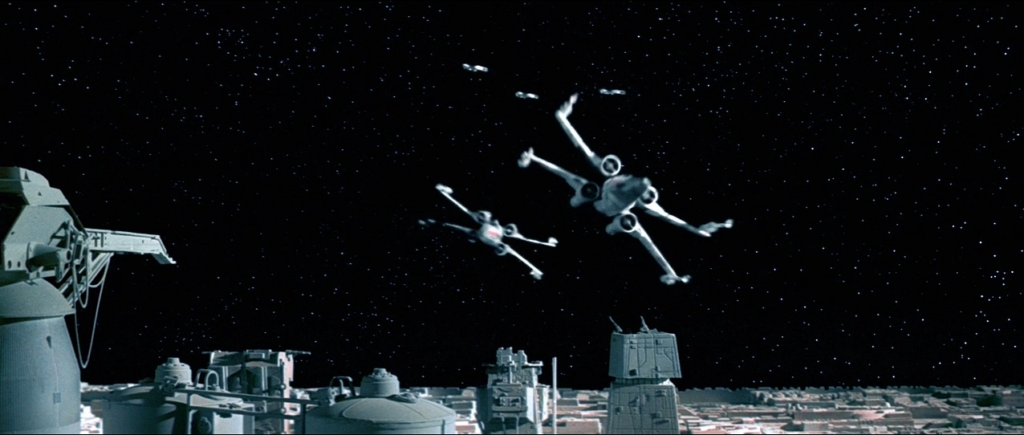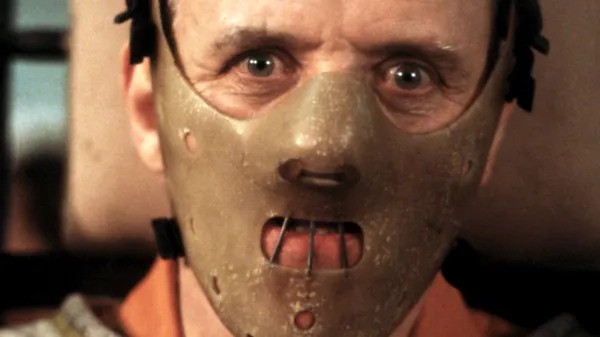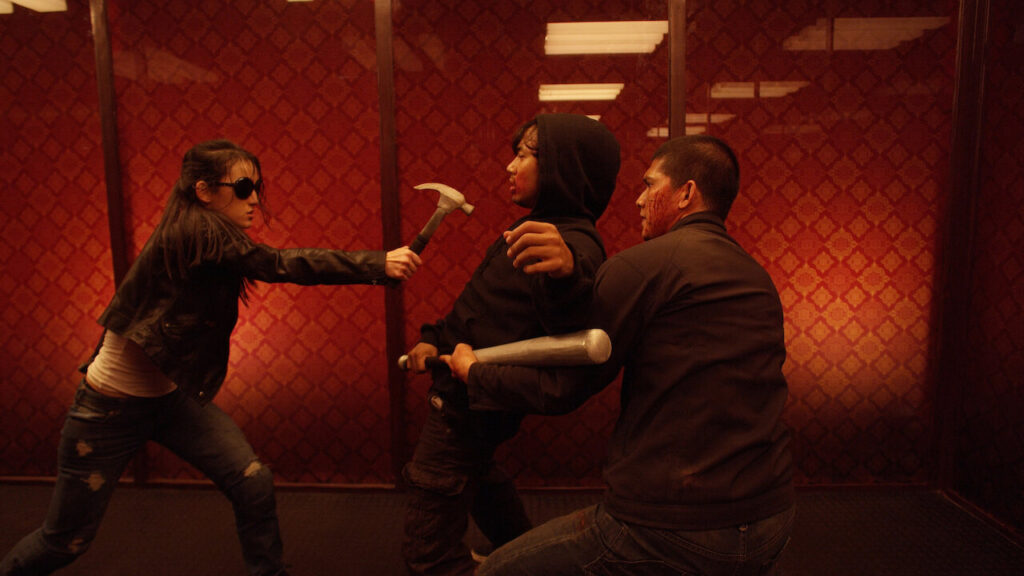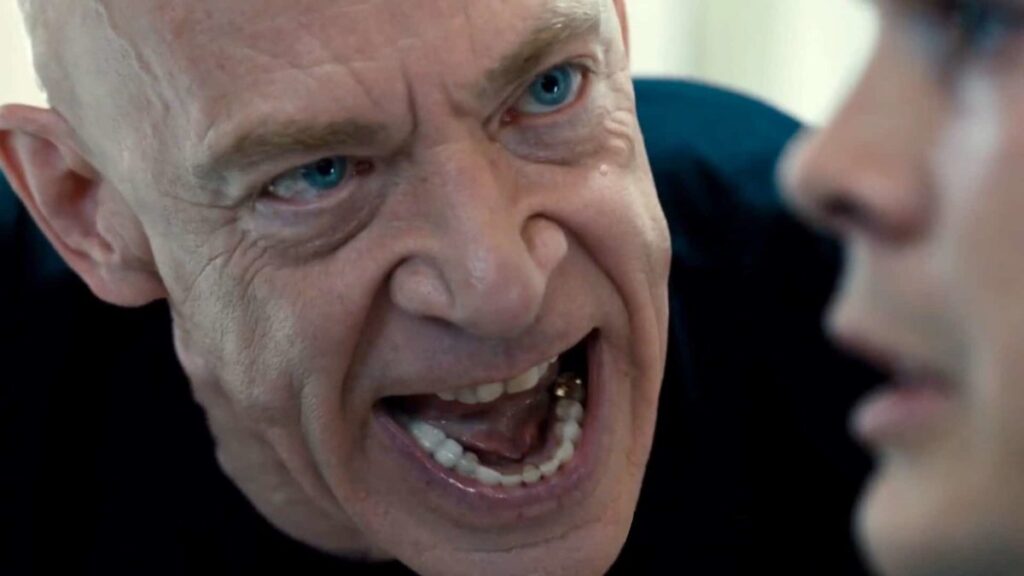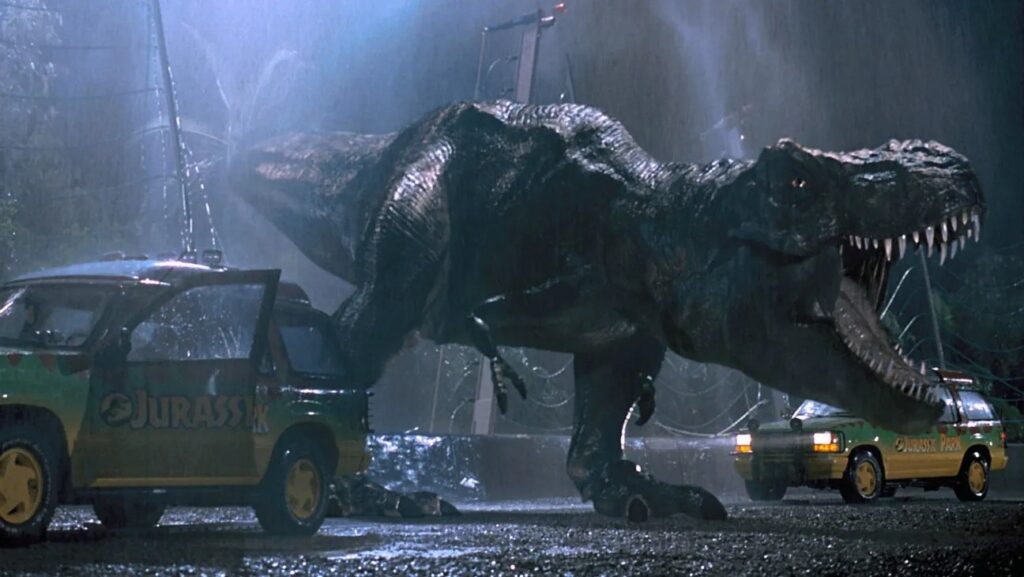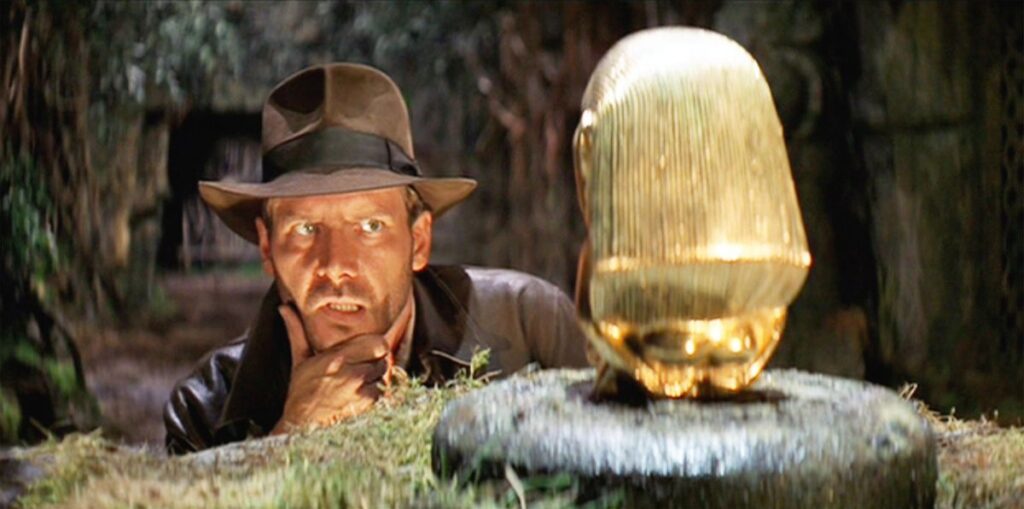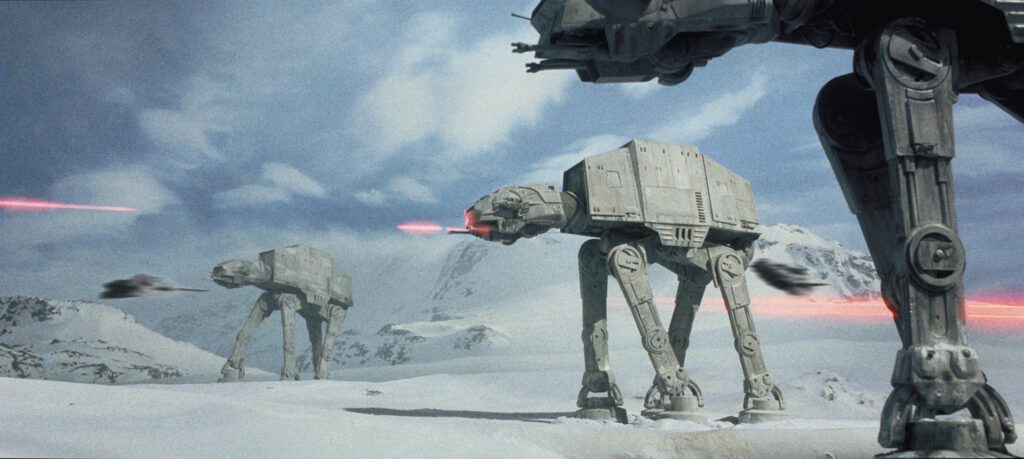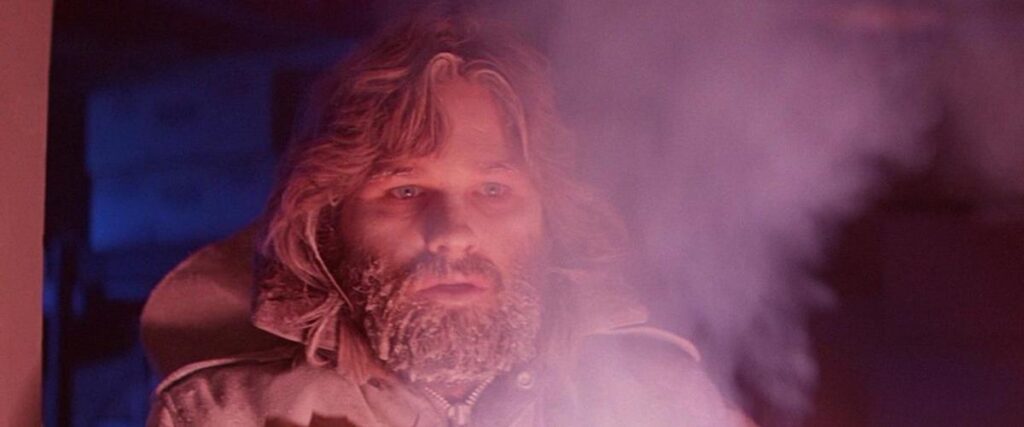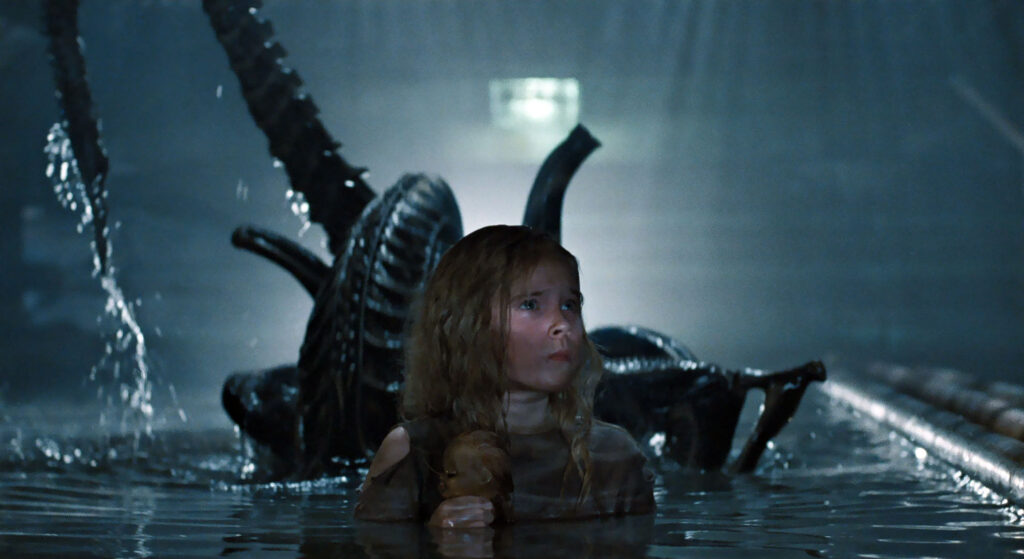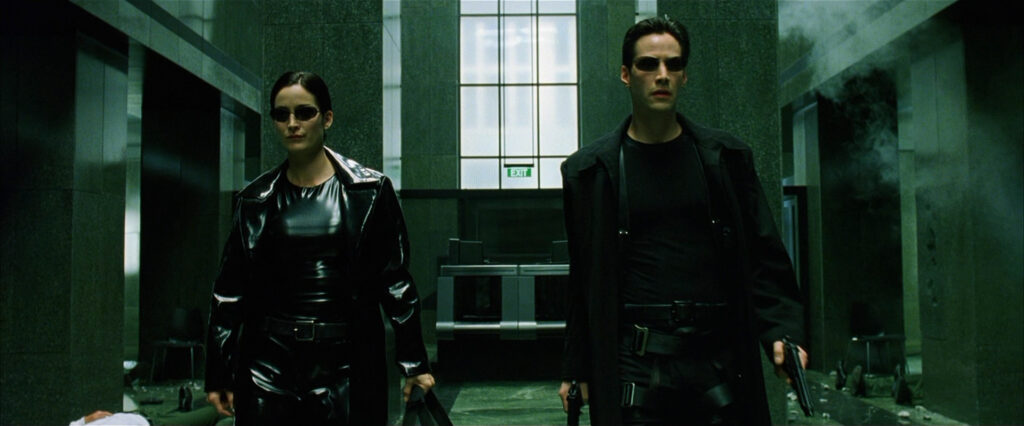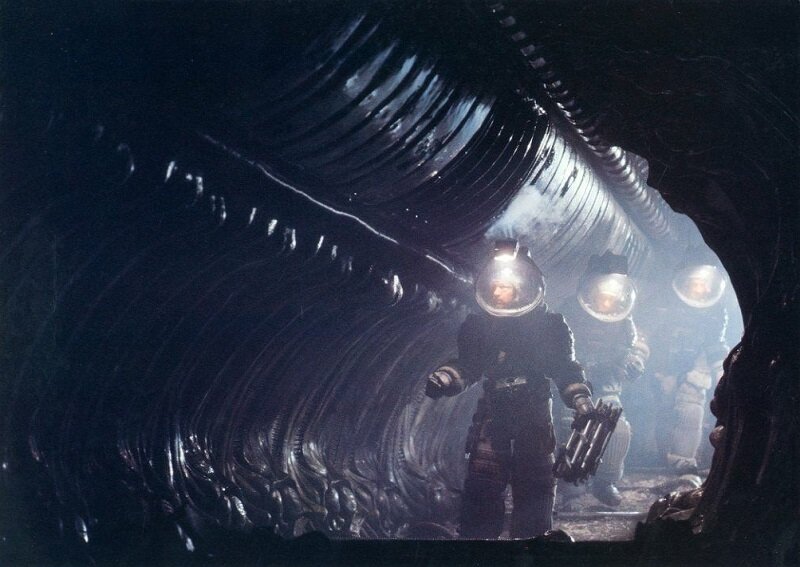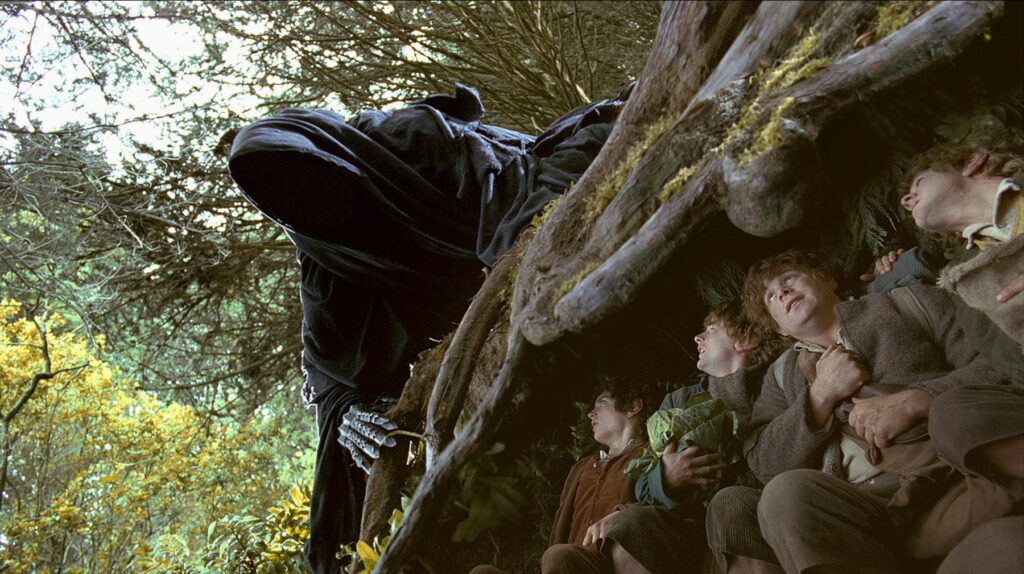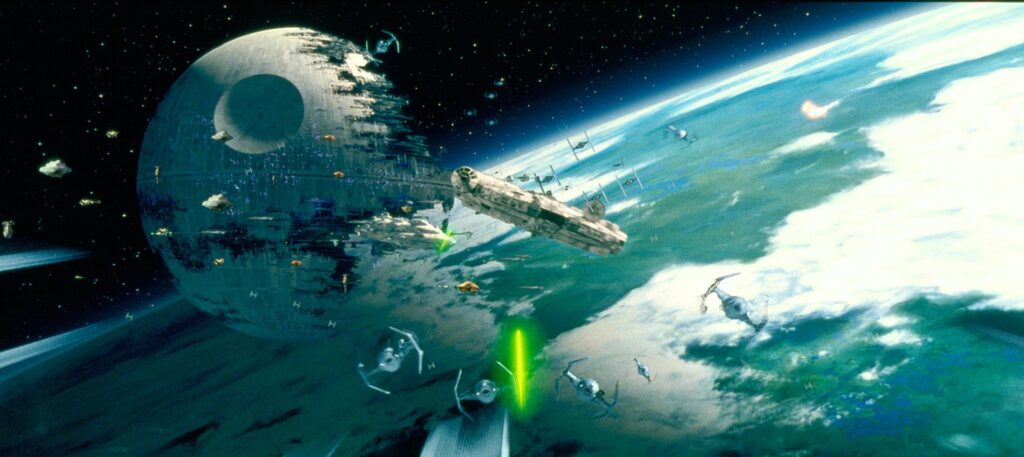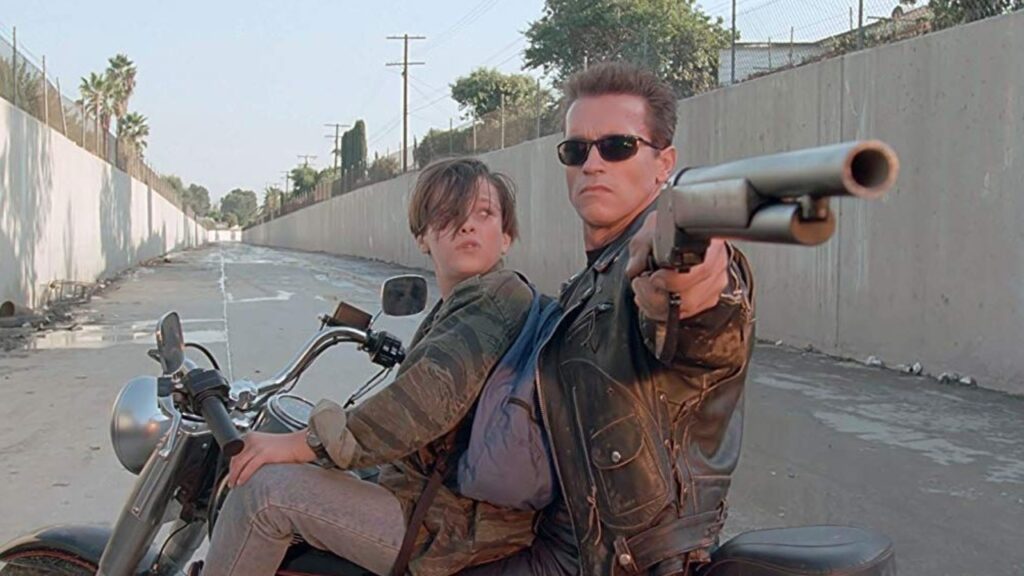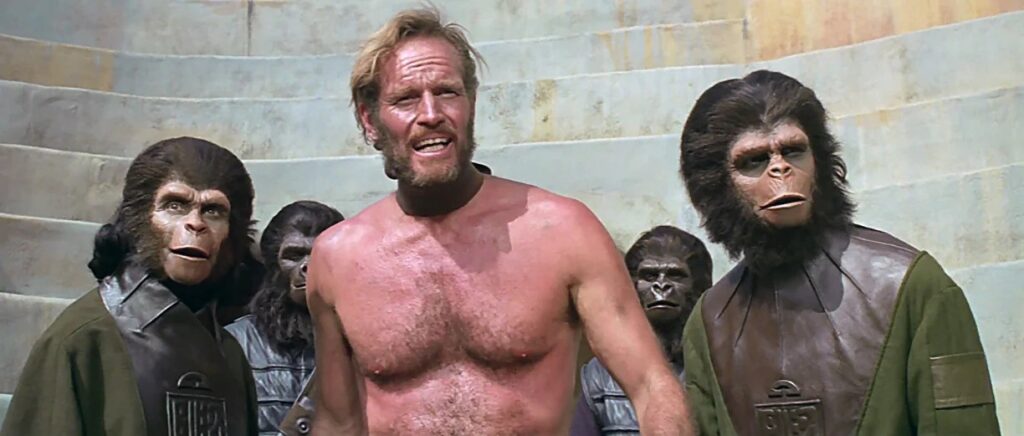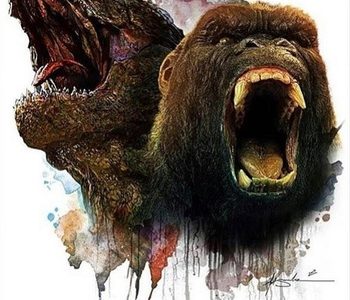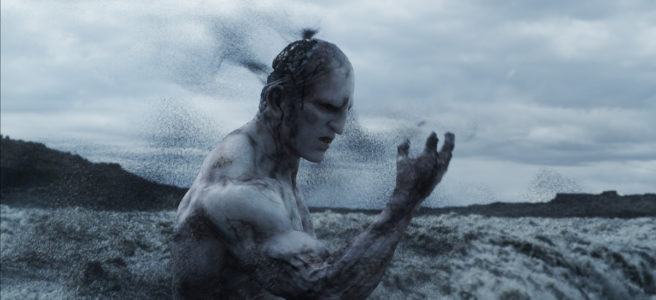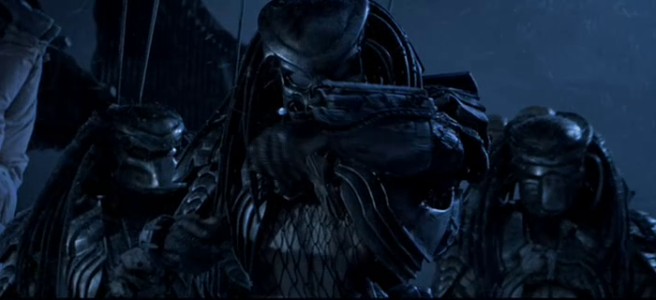Rounding out this new series of favourite and least favourite media, we have my list of the one hundred worst movies of all-time. Films here have earned their placement based on how badly-made they are, if I’d ever want to watch it again, and how much I personally despise the film in question. There are actually quite a few movies on here that I think are extremely entertaining, and I will mention this when it’s relevant, but I have put more weight on their general quality than how enjoyable they are. And, again, these are all very subjective opinions and can only really be based on the movies I personally have seen. Got it? Let’s get into it.
100. Big, Bad Wolf (2006)
Werewolves are my favourite movie monsters, so I will admit that some of my distaste for this film stems from how they handled the central monster. There are two really big negatives here. First of all, the werewolf talks a lot. He is a joker who gives Freddy Krueger a run for his money in terms of all the bad jokes he spouts. Secondly, this werewolf likes to rape women. This film’s pretty notorious for being the one where the werewolf rapes people, and you know that they lean into the exploitation aspect of that. There are a couple pretty prominent scenes of rape and sexual assault, which just makes the film all that more unpleasant to watch, especially when it’s also trying to be comedic.
99. Star Wars: Episode IX – The Rise of Skywalker (2019)
I don’t think there’s ever been a movie I watched more out of obligation than The Rise of Skywalker. By the time it released, I was already sick of Star Wars due to the fanboy discourse around The Last Jedi. Then, when I found out that The Rise of Skywalker was undoing all the “unpopular” elements of The Last Jedi, it made me even more hostile going in. The main thing that I liked about The Last Jedi was that it was setting up a future for Star Wars to tell new stories, instead of just rehashing the greatest hits, so it seemed like The Rise of Skywalker was just going to be more half-assed original trilogy homages. I walked into that theater, but I didn’t do so with any excitement – it was Star Wars, so I had to see it. I could have been watching Knives Out, Jumanji, or goddamn Cats instead!
While this obviously coloured my opinion on the film, there were plenty of other things that really fell flat: an insultingly-dumb narrative, breaking the rules of the Star Wars universe constantly, twists that feel completely unearned, emotionally manipulative attempts to tug at your nostalgia strings… the list goes on.
This movie just makes me feel empty. It’s by far the worst Star Wars movie ever made. I don’t even consider it canon, I’ve basically deleted it from my mind, to the point where I get genuinely surprised when I’m reminded of its existence.
98. The Babysitter: Killer Queen (2020)
I had extremely low expectations for the original Babysitter film, but the premise sounded funny enough that I gave it a shot. I was actually pleasantly surprised by how fun it was, largely thanks to the fantastic lead performance by Samara Weaving. When I found out that they were going to make a sequel without her, I was hesitant, but figured I’d give it a shot again. Unfortunately, Killer Queen is a half-baked, self-referencing rehash of the original. I’ll give Emily Alyn Lind credit for trying to be a fierce villain, but she’s no Samara Weaving.
97. Battlefield Earth (2000)
One of the most notoriously bad movies ever made, Battlefield Earth is largely remembered for being terrible due to its ties to Scientology. If you’ve actually seen the film, you will know that it is extremely campy. It also just looks and feels weird, being shot near-entirely in Dutch angles. That said, I feel like Battlefield Earth‘s notoriety is more due to its prominence and political leanings than its actual qualities. The movie is pretty terrible (hence its placement on the list), but it is also bad in an entertaining, expensive, professionally-made way. You could certainly do a whole lot worse, as you will soon see…
96. An American Werewolf in Paris (1997)
An American Werewolf in London‘s most hailed aspect was its amazing practical effects, so why the fuck did they think that a fully-CGI werewolf would be acceptable for its sequel? Bear in mind that this was done using 1997 CGI (that is to say, it looks worse than most modern made-for-TV movies). The film also seems to have misunderstood the comedic elements of its predecessor, attempting to go for a much more over-the-top tone, which is just grating.
95. Atlas Shrugged: Part 1 (2011)
This first Atlas Shrugged adaptation fails, not so much due to its deluded politics (the most offensive of which are toned down quite a bit), but due to being incredibly boring, cheap, and poorly-made. The film is all “tell, don’t show” and my God does it want nothing more than to go on didactic rants. There’s not even a payoff, since this is very much a “part one” movie, making it an even more inessential watch if you’re not prepared to strap in and watch its even worse sequels…
94. Ouija (2014)
Few horror movies are as limp as Ouija. It features dull characters, terrible attempts at scaring the audience, a toothless PG-13 rating, and is just plain boring to top it off. It’s a bad movie, and not even in a fun way, which makes it all the more shocking how good its prequel turned out (and makes this movie’s quality all the more offensive).
93. The Happytime Murders (2018)
I wanted to like The Happytime Murders. A goofy, raunchy, puppet-based cop comedy sounds like a good time. Furthermore, Melissa McCarthy gets too much hate; this seems like the sort of project she could do well in. Unfortunately, The Happytime Murders is just… stupid. It’s the most cliched cop movie premise you could ask for, with the only original thing being its puppet gimmick that it assumes will let it get by. Instead, it quickly turns into a one-note joke in a film which is direly short on laughs (we get it, it’s another puppet having sex and doing drugs, do you have any other jokes?). Hell, Melissa McCarthy barely even makes an impression, good or bad. She’s just “here” filling a role literally anyone else could have. Like a puppet without a master, the film is nowhere near good enough to hold itself up when its only gimmick is running this thin.
92. A Nightmare on Elm Street (2010)
A Nightmare on Elm Street seems like it should be a decent remake. Jackie Earl Haley is great casting for the new Freddy, it’s got an early performance from Rooney Mara, and it explores new ground with sleep deprivation and how that could bring nightmares into the waking realm, making Freddy even more unavoidable. Unfortunately, A Nightmare on Elm Street does one of my least favourite 80s tropes: “what if Satanic Panic, but real?” Considering that the Satanic Panic ruined several lives over a moral panic that was entirely fictional (not to mention that it made nerds and metalheads social pariahs for more than a decade), I hate seeing this concept get legitimized… and that’s not even getting into how they explicitly made Freddy a pedophile here. It works for the character, but my God, when they make it an overt part of the plot, it does not make him enjoyable to watch. Really though, the worst part of A Nightmare on Elm Street is how dull and formulaic it is, which is a real shame, because the original films are some of the most creative slashers in the entire industry.
91. Resident Evil: Apocalypse (2004)
I often hear people saying that the only good Resident Evil movies are the first one and Apocalypse. These people are dead wrong. I can only imagine that they watched them once when they were young and haven’t seen them in at least fifteen years, because Apocalypse suuuuuucks (and so does the first Resident Evil movie, but it’s good enough at least to not end up on this list). This was the start of the “Alice is a Mary Sue” trope in these movies, and every other character ends up being upstaged by her, or they are just worthless to the narrative. The action isn’t even all that good either, thanks to the weak direction.
90. Friday the 13th: Part III (1982)
Friday the 13th: Part III is close to being enjoyable thanks to its cast of memorable weirdos (Shelly, the biker gang, the annoying hillbillies, fuckin’ Chili), some gnarly kills, and Chris is probably my favourite final girl in the entire franchise. However, the film really falls flat due to being a really dull rehash of the previous two films (which also weren’t that great for that matter). The directors of these films seem to think that tension is built by having characters dick around for several minutes until something happens, but in this movie they forgot that they probably should have these characters, y’know, actually do something. Instead, we get scenes like the bikers frolicking aimlessly in a barn for minutes on end when they’re supposed to be prepping for a vengeful arson. The film also was shot in 80s 3D, so it looks pretty embarrassing today. This is the sort of film that’s more enjoyable as a series of highlight clips on Youtube than it is as an actual viewing experience.
89. Fantastic 4 (2015)
Josh Trank’s much-maligned superhero reboot feels like it has executive meddling all over it. It’s interesting, with ambitions to be a gritty, morally grey, body-horror-inspired take on the material. Unfortunately, what we get here is half-baked, messy, and fails to capitalize on any potential in the premise, ultimately making the whole affair feel pointless.
88. Pride and Prejudice and Zombies (2016)
Pride and Prejudice and Zombies should have been so simple: take the, er, skeleton of Pride and Prejudice and then add some over-the-top zombie action between the romantic drama. Instead, the film opts for an excessively-serious take on Pride and Prejudice with some scenes and lines changed to add in zombies, which makes them feel perfunctory rather than a key part of the story (imagine that). Oh and then add in that this is a wannabe-gory zombie film that’s being neutered by a PG-13 rating, so you can’t even get any visceral thrills to stave off the boredom. Add it all up and you’ve got a boring, one-note slog that it should have been a slam-dunk fun time at the movies.
87. Assassin’s Creed (2016)
Assassin’s Creed had all of the potential in the world, from its cast, to its production values, to the unusually strong narrative of its video game source material. Unfortunately, it’s all completely wasted on a script which strips out all of the mystery and intrigue of the games, spends 90% of its dialogue reiterating the exact same dialogue about free will over and over again, and is just plain dull. I would love to find out where exactly this project was screwed up, because there was so much potential for a great movie here that the fact that they missed by so much is a crying shame.
86. A Good Day to Die Hard (2013)
A Good Day to Die Hard is, frankly, a really sad end for this storied franchise. Say what you will about some of the other Die Hard sequels, but this is the only one that is outright bad, with weak action sequences, a script by Skip Woods (that is to say: full of complicated political intrigue that does not translate well to a fast-paced action movie, making the whole thing seem dumb as all hell), and poor chemistry between Bruce Willis and Jai Courtney. Hell, even John McClane is annoying in this movie, which is a sentence that should never have to be written, but here we are.
85. Hellraiser: Hellseeker (2002)
I’ve been watching the Hellraiser sequels this year and, thus far, they haven’t been nearly as bad as I had heard. I legitimately kind of like the wild ambition of Bloodlines, and Inferno and Deader are way better and more interesting than they have any right to be. However, that cannot be said of Hellseeker, which is an absolute slog of a film. The film commits multiple deadly cinematic sins, most notably that it brings back original final girl Kirsty Cotton, only to kill her off in the opening minutes. Instead, we spend the rest of the runtime with her boring-ass husband, Trevor, who just looks constantly confused. The next hour and a half are spent in explicit dream logic, with no way to tell what is really happening and what is not, or when scenes shift from reality to fiction. This might sound like it could be spooky or leaves the film up for interpretation, but it’s not that deep. Instead, it just gets fucking annoying, causing me to stop caring about what is happening, because the film sure as hell doesn’t want me to invest in any of it. It doesn’t help that this movie came after the much better-executed Inferno and is clearly drawing inspiration from it, meaning that the reason for all this dream logic is pretty obvious if you had seen that film already.
84. Hellraiser: Hell on Earth (1992)
As bad as Hellseeker is, Hell on Earth definitely takes the cake as the worst Hellraiser I’ve seen (so far). You can feel the Weinsteins’ fingers all over this movie, forcing bigger body counts for Pinhead and the Cenobites to turn them into more traditional slasher villains. Those Cenobites, by the way, are just embarrassing this time around, with some of the ugliest designs in the entire franchise. All this results in a film which just does not work. The characters suck, the attempts to expand the mythology suck, the script sucks… everything just sucks here.
83. Wrath of the Titans (2012)
Despite its success, the Clash of the Titans remake was pretty bad, getting by from Liam Neeson saying “Release the kraken!” and being the first big 3D movie released after Avatar. I figured they’d try harder to justify a sequel, but somehow they managed to make a film which was even dumber and more generic than its predecessor (which is a feat in itself).
82. Resident Evil: Retribution (2012)
Retribution is by far the dumbest Resident Evil movie. There’s shockingly little plot here: Alice is trapped in an Umbrella facility and needs to escape… that’s it. Meanwhile, a bunch of characters from the games (who are terribly brought to life on the big screen) are trying to break her out. Oh, and Milla Jovovich had just had kids, so now Alice is a mother, despite it never being an aspect of her character until now. How do they force this in? Well, she meets a kid who thinks she’s her mom, because Alice is stuck in a real-life simulation where Alice clones have been trying to survive a zombie apocalypse… life I said, it’s fucking dumb. We then get a bunch of admittedly decent action scenes, but there’s basically no substance to grab onto here. You can do better, trust me.
Oh, and that kid? Dead by the time the credits roll. Boy, being a mom sure was important to Alice!
81. Hitman (2007)
It’s bad when you’re watching a story that is so convoluted and nonsensical that you think “this must be a Skip Woods film”, and then check IMDb to confirm your suspicious are correct. I dunno if the guy just writes elaborate scripts which then get butchered on their way to screen, but he legitimately is one of the worst screenwriters in all of Hollywood.
80. Saw 3D (2010)
Saw 3D opens with a trap which has two guys strapped to a table saw. A woman, who is cheating on them both, is suspended above them. They are instructed by Jigsaw to take a life in order to free themselves. Oh, and this trap takes place in a public storefront, so they quickly draw a crowd of onlookers who just stand there and gawk rather than, y’know, trying to stop this attempted murder. It’s so bonkers that I legitimately thought that this was supposed to be a public theater satire of the Jigsaw killings, but no… it’s a real Jigsaw trap and they actually want us to take this whole thing seriously. It was at this point that I realized that Saw 3D was going to suck.
Saw 3D is a cartoonish embarrassment, easily the worst Saw film ever made. There are some pretty nasty traps here, but they’re undermined by significantly more traps which are just idiotic> The colour grading is awful due to being shot in 3D, which makes the copious amounts of blood look hot pink. It also features an infuriating finale, with perhaps the most unjustified death of the entire franchise. It’s absolutely no wonder the franchise took a seven year hiatus to try to wash the stink of this movie off.
79. Friday the 13th Part VIII: Jason Takes Manhattan (1989)
Most of the Friday the 13th movies are consistently mediocre, rarely deviating from a pretty simple formula. However, around the time of Part VII, the producers started feeling like they needed to bring in some gimmicks, and Jason Takes Manhattan seemed like it could be the most exciting of these. The promise of having Jason head into the big city to carve up teens sounded like it could shake up the formula just enough to be a big, blockbuster event. Unfortunately, Jason Takes Manhattan is notorious for being one of the most disappointing films in the entire franchise. Pretty much everyone knows that the New York section of the film only last about twenty minutes and the rest of the film is spent on a cruise ship, where Jason somehow manages to go unnoticed as he kills tons of irritating kids who give us no reason to actually care about them. The film also introduces an idiotic “kid Jason” subplot which is one of the most embarrassing ideas in the entire franchise (which is saying something, considering some of the bullshit they added in the latter-day sequels).
78. Survival of the Dead (2009)
I’ll give George A. Romero credit for continuing to make films and try to push the zombie genre forward as he was approaching his seventieth year. Unfortunately, Survival of the Dead was an embarrassing note to end that career on. You can see glimmers of the social commentary which helped make his original Dead trilogy so good. The film takes place on an island where a bunch of ranchers are attempting to cure their undead relatives. Cowboy and Hatfield/McCoy shenanigans ensue from there. Unfortunately, the film is just fucking stupid, cheap, and poorly-shot, with dull characters. About the only thing that actually stood out to me was that the film answers the question “What happens if you bite a zombie?” That’s… pretty dire if it’s the only thing that really stands out about the film (the answer is “You become a zombie”, by the way).
77. Resident Evil: The Final Chapter (2016)
I fucking hate this movie. Paul W.S. Anderson pulls a bunch of shit from his ass to try to make sense of this franchise he’s cobbled together and try to give it some sort of satisfying send-off. As you’d probably expect, the results are really dumb and not satisfying in the least. What you may not expect is that the actions scenes kind of suck here as well, negating the one defense that people will try to use to justify liking these movies. Worst of all though is that a man died and a stuntwoman got maimed making this piece of shit movie, all because Paul W.S. Anderson and the other producers cheaped out on the production and put their crew at risk. Imagine dying or having to get your arm amputated, all for goddamn Resident Evil: The Final Chapter. Fuck this movie, it deserves to rot in hell.
76. Superman III (1983)
This movie is just so embarrassing. Superman becomes a secondary character in his own film, while Richard Pryor performs a bunch of cartoon antics that take up way too much screen time. The plot is incredibly dumb, full of the childish jokes that people complained about in the theatrical cut of Superman II since Richard Lester has taken over full directing duties this time around. It’s kind of a shame too, because the cast are generally great. There’s also a cool subplot where Superman is turned evil, but then Clark Kent splits from him and the two sides of Superman have to fight for control. It’s a genuinely good concept, which is entirely out of place in a film where a woman gets pushed into a computer and is instantly turned into an android…
75. Transformers: Revenge of the Fallen (2009)
Michael Bay’s original Transformers film was actually pretty well-regarded when it released. It wasn’t until this movie, Revenge of the Fallen, that people really came to realize that these movies were not good. The action was incoherent, the narrative was dumb, and the film was incredibly lowbrow (to the point of having two racist caricature robots and a transformer with a set of testicles), and the film was overloaded with CGI.
74. Transformers: Age of Extinction (2014)
Honestly though, I think Age of Extinction is even worse than its more notorious older sibling. This is the Transformers film with a character who carries a card on him to justify statutory rape. We’ve got Mark Wahlberg taking over as the leading man… which I guess is an upgrade? He’s incredibly dull, but at least he doesn’t annoy me like Shia LaBeouf’s Sam did. We also get a healthy dose of Stanley Tucci, which is a highlight, but even watching him doing cartoonish antics gets grating the longer it goes on. For the most part, Age of Extinction is every bit as loud and dumb as any other Transformers movie, but what puts it over the edge for me is my experience when I watched it in theaters. The movie had dragged on to what felt like a climactic action sequence and the story seemed to be wrapping up. I legitimately thought the movie was about to end, and if it did, then this wouldn’t have been my least-favourite Transformers movie. But no, then suddenly the film goes to China, and I check my watch: we’re only halfway through this movie, what the fuck!? Suffice to say, the back half of this movie was worse than the front, making this drawn out experience feel even more torturous.
73. The Wicker Man (2006)
The quintessential “Youtube highlight reel” movie, The Wicker Man isn’t really worth watching. The clips you see online are weird, but in-context they do make some sense. However, this movie is a pure, bad 2000s horror remake (glossy production, big budget, weak horror elements). It’s only differentiator is that Cage’s performance is absolutely bonkers, but you really should just stick with the highlight reels.
72. Death Note (2017)
I have the perhaps notorious opinion that the Death Note anime is kind of trash. In what world is a show, where 70% of its episodes are bad and then 30% are great, “one of the greatest anime of all-time”? So, believe me, I was not coming into this Death Note adaptation expecting it to suck. Hell, I was actually kind of excited, because I already liked Adam Wingard for You’re Next and Willem Dafoe as Ryuk was awesome. I love the premise of Death Note, so I was eager to see if a different interpretation could do better. Unfortunately, this Death Note movie squanders basically everything that actually was good about the manga and anime in favour of a by-the-numbers supernatural crime drama. Gone are all the philosophical musings about morality and justice which were the main reason the series was so compelling to begin with. Instead, it’s just generic cop plots and high school killer clichés.
71. The Twilight Saga: New Moon (2009)
In high school, my friends and I would do these really amateur rifftrax of movies we didn’t like. We got through most of the Twilight movies, but I feel like we gave them a fair shake (we all felt that Eclipse was not bad). I get that these movies are not for me, and I don’t want to yuck anyone’s yum… but, my God, this movie was a torturous experience. It is so slow and dull, stretching a thin plot over more than two hours of runtime. The main characters make this feel even worse, because I didn’t give a shit about any of them (I will say that the background characters have much more interesting personalities though).
70. Independence Day: Resurgence (2016)
When I was ordering this list, Transformers: Age of Extinction became a bit of a barometer for me. I’d think of bad blockbusters and ask “Is this movie worse than Age of Extinction?” to help rank them. For Independence Day: Resurgence, that was a very quick and definitive “YES”, which should give you an idea of how bad it is. This long-belated sequel is even louder and dumber than the worst Transformers film. For a movie that was in development for twenty years, it’s almost shocking how half-baked Resurgence feels. There are lots of pointless subplots, the “escalated” threat feels no where near as potent as it did in the original, and the characters have basically no development and give us no reason to actually care about them. In fact, the only characters I felt anything for were the gay scientist couple, but that was mainly because of their charming performances rather than the script. If you want mindless action, then the movie will deliver that, but it’s not even particularly noteworthy in that regard. Just rewatch the original if you need some stupid fun, it did that far more competently.
69. The Purge (2013)
The Purge was the biggest disappointment I have had in theaters. The premise is incredible: crime becomes legal for twelve hours once a year! However, they clearly had no budget to work with, so they set the entire film inside a single house. The entire premise just gets used as an excuse for why their home is getting invaded, why their power has been cut, and why they can’t just leave. Making matters worse, most of the film revolves around the Sandin family somehow managing to get lost in their own goddamn house as they try to find a homeless veteran who snuck in to try to escape the purgers. I didn’t expect The Purge to be anywhere near amazing, but it failed to be even entertaining.
68. The Angry Birds Movie (2016)
If you are, like, the youngest of kids, then Angry Birds probably passes for you, but just barely… Unless you are amongst the most easily entertained of people, Angry Birds is just a collection of dull “comedy” scenes stitched together haphazardly, which are anchored by a bunch of irritating pastiche characters, all in an effort to try to turn this shitty mobile game into a proper multi-media franchise. Yeah… good luck with that, Rovio.
67. Don’t Breathe 2 (2021)
Don’t Breathe 2 is one of those sequels that is fundamentally flawed in its conception and therefore doomed to failure, no matter how it was handled. The Blind Man is a relentless monster and trying to humanize him for this sequel is an idiotic move. This would just be a boring, run-of-the-mill father revenge movie, but it’s a sequel to Don’t Breathe. There’s certain expectations that come with that, and this film does not meet them! There’s barely any tension to be had. Worse though, the film doesn’t even acknowledge that The Blind Man is a psycho rapist, we’re just supposed to accept his own justification that he “technically didn’t rape anyone”, forget about it, and accept that he’s changed. It’s so fundamentally stupid that it brings the rest of the film down around it.
66. Red Dawn (2012)
I will never forget how hard I laughed when I was watching Red Dawn, and then it suddenly turned into an ad for Subway. I’m not even joking, it was the most blatant product placement I had ever seen in my life. Josh Hutcherson even called the employee a sandwich artist and made sure they used his favourite warm and flaky bread!
I thought that the original Red Dawn was kind of crappy, so I wasn’t even going into this expecting it to not live up to the original. However, this film can’t even reach those modest heights. The film gets let down by its characters (who, if they aren’t just bland, are straight-up unlikeable), mediocre action sequences, and a script which is insulting to the audience’s intelligence at times. Also, the fact that North Korea are the ones conquering America is fucking hilarious (and then it’s frustrating when you realize this is because they shot the film to be about a Chinese invasion, but then edited it so that they could try to sell the film in China… like, have some integrity to something other than the almighty dollar).
65. The Twilight Saga: Breaking Dawn – Part 1 (2011)
Look, as bad as New Moon was, it doesn’t hold a candle to Breaking Dawn – Part 1. The previous Twilight films barely had enough plot to fill one movie. The thought that you could get two movies out of Breaking Dawn is laughable, and the film suffers due to Lionsgate’s desire to double-dip their audience. The film is every bit as boring as New Moon and is just as long as the other movies, but there’s less plot to work with than ever before, making this an even more torturous viewing.
64. Resident Evil: Welcome to Raccoon City (2021)
I have so much I want to complain about with this movie, but I’ll keep it relatively brief. An adaptation that’s more faithful to the source material makes sense for Resident Evil, but there are so many bone-headed decisions made here and half-baked ideas. The film is loaded with Easter eggs and callbacks to the games, but these end up serving no purpose to the actual narrative, which makes them feel cheap and insulting to the audience’s intelligence. This movie’s girl-boss version of Claire is somehow less interesting than than her “she’s just a normal tomboy” persona from the games. Leon being portrayed as a washed-up failure of a cop is an interesting idea, but he is given absolutely nothing to do in the entire movie, so it just feels like someone had a personal vendetta against his character. The idea of having Raccoon City as a ghost town feels like it was done to make filming during COVID restrictions easier, but it ruins the entire premise of a mass outbreak that makes the games’ version of these events so compelling. Resident Evil games don’t exactly have great stories, but the first and second games have very different tones and plot structures. You don’t have to be a fucking genius to realize that, if you mash the plots of the first two games together, it doesn’t make any sense and ends up creating a narrative that is so much worse than either by itself. Oh, and don’t even get me started on what are the stealthiest zombies I’ve ever seen in a movie, dear God. The one positive I can say is that the cast are all really good, I just wish they had been given some proper material to work with. As is, Welcome to Raccoon City is as bad as the worst Paul W.S. Anderson Resident Evil movies, which is something I never expected to have to say.
63. Taken 3 (2014)
Look, we were already burnt out on the Liam Neeson action movie after Taken 2, but Taken 3 still felt like one of Bryan Mills’ signature nut punches. The film has two major issues which leave it hamstrung. First of all, the action just plain sucks, due in large part to the haphazard, rapid-fire editing (not to mention that there is a distinct lack of actual action this time around during basically the entire second act). Secondly, the writing is abysmal. Idiotic plot conveniences abound. I literally slapped myself in the face at least five times during the movie in frustration at how stupid everyone was for the sake of the plot. Not to go on a tangent, but I noticed the freaking bagels the second he found Lenore dead: he had an ironclad alibi and could have been released in a couple hours if the police just checked a fucking security camera. Instead, Bryan Mills decides to get into gun fights and car chases with the police every five minutes, presumably because he’s an idiot. Beyond even that though, I’m kind of insulted that they fridged Lenore to begin with. For one thing, it is such an overused and sexist trope that it demonstrates just how lazy the writers are. For another, it retroactively makes Taken 2 even worse by making its third act pointless, since we now know she’s going to die anyway.
62. R.I.P.D. (2013)
R.I.P.D. is what happens when a movie exec decides to cater to all the things that people like. It combines Men in Black, Ghostbusters, Jeff Bridges’ Rooster Cogburn, and Ryan Reynolds (before people were getting annoyed with him). However, the resulting movie ends up feeling way too juvenile for its own good.
The film has some funny moments, but more often than not you’re left groaning at the bafflingly stupid, juvenile jokes which were thrown in for no good reason. Like… there’s a scene where they’re chasing the bad guys, and these bad guys are just farting constantly as they run away… it’s so funny that I forgot to laugh. The plot was very formulaic as well, which could have been fine if the rest of the film was enjoyable, but seeing that it wasn’t, it just ends up making the whole thing feel worse.
61. Catwoman (2004)
Catwoman is one of those films where I cannot believe that they actually released this in theaters. It is such a baffling movie, with unhinged performances from Sharon Stone and Halle Berry. I’d love to say that this movie is a misunderstood masterpiece, as it does have a great look for Berry and some style, it’s just so, so dumb. We got a lot of really bad comic book movies in the 2000s, and Catwoman is undoubtedly the worst of them.
60. Terminator Genisys (2015)
The only nice thing I can say about Terminator Genisys is that it retroactively made people fonder of Salvation. The entire premise of having John Connor turn evil feels downright blasphemous to the series’ legacy. Emilia Clarke and Jai Courtney are about the two worst actors you could have picked to lead a major film like this, which is even worse when you compare them to Linda Hamilton and Michael Biehn. The film is also basically a “greatest hits”, remixing scenes from significantly better Terminator movies to lesser effect. Predictably, this makes the film feel like it has no identity of its own, other than being really fucking dumb.
59. Alien: Resurrection (1997)
God I hate this movie. I get that they wanted to go for a different tone, but… guys, it sucks so bad. The Whedon-isms are grating and clash with the off-beat style of Jean-Pierre Jeunet. The aliens also stop being the real threat about two thirds of the way through, leaving us with an abomination of a replacement. Oh, and Ripley fucking suuuuucks in this film.
58. Jurassic World: Dominion (2022)
I HATED Fallen Kingdom, so when I find myself thinking back on it with some fondness after watching Dominion, you know that Trevorrow has screwed up big-time. There are so many things I could complain about in this movie, but here’s just a handful of them:
- The legacy characters are blatantly shoehorned into this movie. You could cut them out of the film entirely with basically no effect to the main plot.
- The movie has stripped out the horror elements of the series entirely. It’s now just straight-up action, which is far less interesting.
- The bad guys are all a bunch of unthreatening weenies. I don’t even mean just the human characters either: Giganotosaurus, which is only in this movie to give the T-rex something to fight, has absolutely no bearing on the greater plot and can barely muster a threat to our characters (compare that to the Spinosaur in Jurassic Park III to really understand how dire this film is at everything).
- The film is incredibly bloated. At one point it felt like it was going to end and then I realized there were (somehow) still fourty-five more minutes left.
- The film commits to some incredibly stupid retcons. These retcons obviously were put in place to try to respond to criticism of Fallen Kingdom, but in their cowardice, they just made it worse.
- The stupidest thing about this movie though is that it ends with the message “hey, genetic manipulation is cool actually and will solve all our problems with it!” How much further from Jurassic Park could you get than that?
Dominion is just further evidence that Jurassic Park should never have had sequels, or at the very least, the franchise should have not been brought back from extinction after Crichton’s death. I’m probably going to do another round of Retrospective catch-ups eventually, so expect more expanded thoughts on this movie in the future.
57. Left Behind: Rise of the Antichrist (2023)
GOD, this movie is just fucking exhausting. It’s like spending all your time on Twitter reading what the grifters and outrage merchants are saying; it makes you want to scratch your face off in frustration. That said, complain all you want about the in-your-face politics: the real, crippling issue it faces is that it is criminally dull. For reference, the original Left Behind adapted all the material in this movie into a fairly brisk hour. This movie stretches that out to two hours and it absolutely drags as a result. Add in some very lethargic performances (especially from ol’ Sorbo himself) and the aforementioned ham-fisted politics, and this is a film that struggles to maintain interest.
56. Street Fighter: The Legend of Chun-Li (2009)
Oh good, finally we get a movie that is just really badly made rather than one that actively pisses me off just thinking about it. Put simply, The Legend of Chun-Li is crap on basically every level. It’s pretty embarrassing when you make a Street Fighter film which gets completely outclassed in all regards by the notorious Jean Claude van Damme film, but they somehow managed that here. The Legend of Chun-Li is not even all that entertaining either, with some very limp fight scenes. It also features a couple shockingly violent (for PG-13) scenes which are jarring against the overall light tone, further making you wonder what the hell anyone was thinking while making this movie.
55. The Escape Plan 2: Hades (2018)
I legitimately really enjoyed the original Escape Plan movie, it was a good 80s throwback film with a fun cast and premise. I didn’t expect much from a sequel, but if it could capture even a fraction of the previous film’s quality, it would still be decent. Unbelievably, Escape Plan 2: Hades is so ineptly put together that I can’t believe that Stallone and Dave Bautista signed on to be in it. There might have been a decent movie in here somewhere, but it’s totally wasted on a poorly shot and horrendous, incoherently edited film.
54. Halloween 5: The Revenge of Michael Meyers (1989)
Halloween 5 is a pretty terrible film, even by slasher sequel standards. The film was shot without a completed script, and it totally shows, because there is no way that someone could sit down and intentionally write out the events of this film before it was filmed. The film throws in a bunch of dumb mythology about ill-defined bloodlines and curses, and Tina is one of the dumbest final girls in slasher history, making for a movie where you can feel your brain cells dying as you watch it.
53. Halloween Kills (2021)
My God, Halloween truly is the worst major horror franchise, because so many of its entries fucking suck. Halloween Kills is the most recent of these abominations (I… mostly liked Halloween Ends?). In a lot of ways, it’s a high-production value version of an 80s slasher sequel: a terrible plot and characters, but lots of brutal, gory kills. However, this feels so much worse for two reasons: 1) Halloween (2018) was so good and Kills comes nowhere close to it, and 2) The movie drags like mad. It feels positively aimless, wasting lengthy scenes on mostly-dull characters and half-baked plots with unearned resolutions. The ending also just straight-up pisses me off. About the only thing this movie does right is making Michael Meyers a terrifying, unstoppable monster, so I can understand why some hardcore Halloween fans would enjoy this. For my part, I was bored from start to finish of this wheel-spinning, poorly-edited, frustrating mess.
52. Jason Goes to Hell: The Final Friday (1993)
I have to give Jason Goes to Hell some credit for at least attempting to do something completely different with the Friday the 13th formula, but they absolutely failed and the results are baffling to witness. Suddenly adding a bunch of mystical lore nine movies in to try to explain some of the weirder aspects of the previous films was a fool’s errand, and having Jason be this body-hopping spirit is way less interesting than if he’s just an unstoppable, undead killing machine. This fundamental issue makes the film borderline unwatchable, even if it does have some fun characters and really gnarly kills that get lost in the shuffle. Oh, and do I need to mention that the movie ends with Jason climbing up a dead woman’s vagina so that he can be reborn from her corpse? Yeah… this is quite the film.
51. Howling III (1987)
Howling III is one of the most unhinged movies I’ve ever seen. I’ll give them some credit, they were swinging for the fences with this movie: it is brimming with ambition and a sincerity; you can tell that this was a passion project for Philippe Mora. Unfortunately, this film is absolutely deranged, featuring terrible werewolf designs, awful special effects (the scenes with the werewolf baby puppet make me want to pour bleach in my eyes), some of the worst acting I’ve ever seen, and a certifiably insane script with too many superfluous characters. This is a film which packs a whole five or six acts into an hour and a half runtime (for reference, your average movie tells its story over three acts in the same timeframe), meaning that it has no time to actually linger on any ideas, but also just wastes a bunch of time on pointless bullshit. Criminally, it’s not even all that entertaining either.
And that’s it for part one. If you’re reading this the day it comes out, then part two will be out tomorrow!
If you liked this article…
I hate ads. You hate ads. In order to stop polluting my site with obtrusive and annoying ads, I’ve elected to turn them off on IC2S. That said, writing still takes time and effort. If you enjoyed what you read here today and want to give a token of appreciation, I’ve set up a tip jar. Feel free to donate if you feel compelled to and I hope you enjoyed the article! 🙂
